THE R ECORD











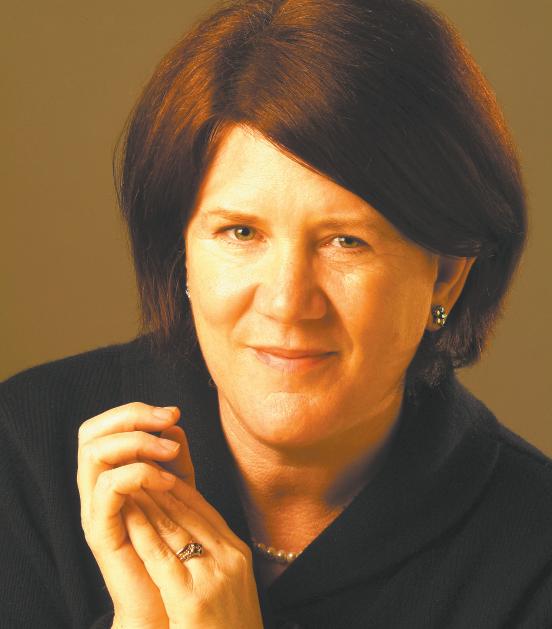

Perth agency sets cracking pace in communicating vital information to assist students, teachers and parents for life. And there’s plenty to do.
BY ANTHONY BARICHTHE Archdiocesan Natural Fertility Services agency is set to have 10 fully accredited Family Life educators working in primary and secondary Catholic schools around the Archdiocese - an unprecedented number for the agency and for Catholic schools.
The agency has had its largest intake of trainees this year, reflecting success and acceptance of the importance of its work among teachers, parents, tertiary institutions and the wider community.
In recent years NFS has had to decline pleas from a number of schools requesting visits from its educators. The new intake will allow NFS to accomodate these.
NFS will also have two educators stationed in country areas; educators are re-accredited every two years.
NFS is one of several Catholic Archdiocesan organisations undertaking key work promoting the benefits for marriages and relationships of natural methods of family planning; it focuses on promotion of the sympto-thermal method of assessing women’s fertility.
Growing numbers of Church leaders and thinkers in recent decades have identified support for marriage, the institution of the family and family life as a vital work for the Church in the modern era; key to this is the promotion of formation and education in delicate areas such as sex and relationships which run counter to an increasingly sharply defined culture of death.

Aside from working with couples already in relationships or preparing for marriage, agencies such as NFS, Billings and others offer virtually the only alternative to youth bombarded by a media-led culture of promiscuity and moral relativism which accepts abortion as the fallback safeguard when contracepted promiscuity fails.
NFS also offers support, education and counselling to couples with infertility problems and to menopausal women and provides teaching programmes to couples preparing for marriage, secondary students and others. NFS educators are fully accredited by the Australian Council of Natural Family Planning.
This “new blood” is bringing new life to the agency’s programmes as it constantly upgrades and expands its ideas to meet the needs of parents, teachers and students, NFS manager Chris Fernandez told The Record Please turn to Page 6
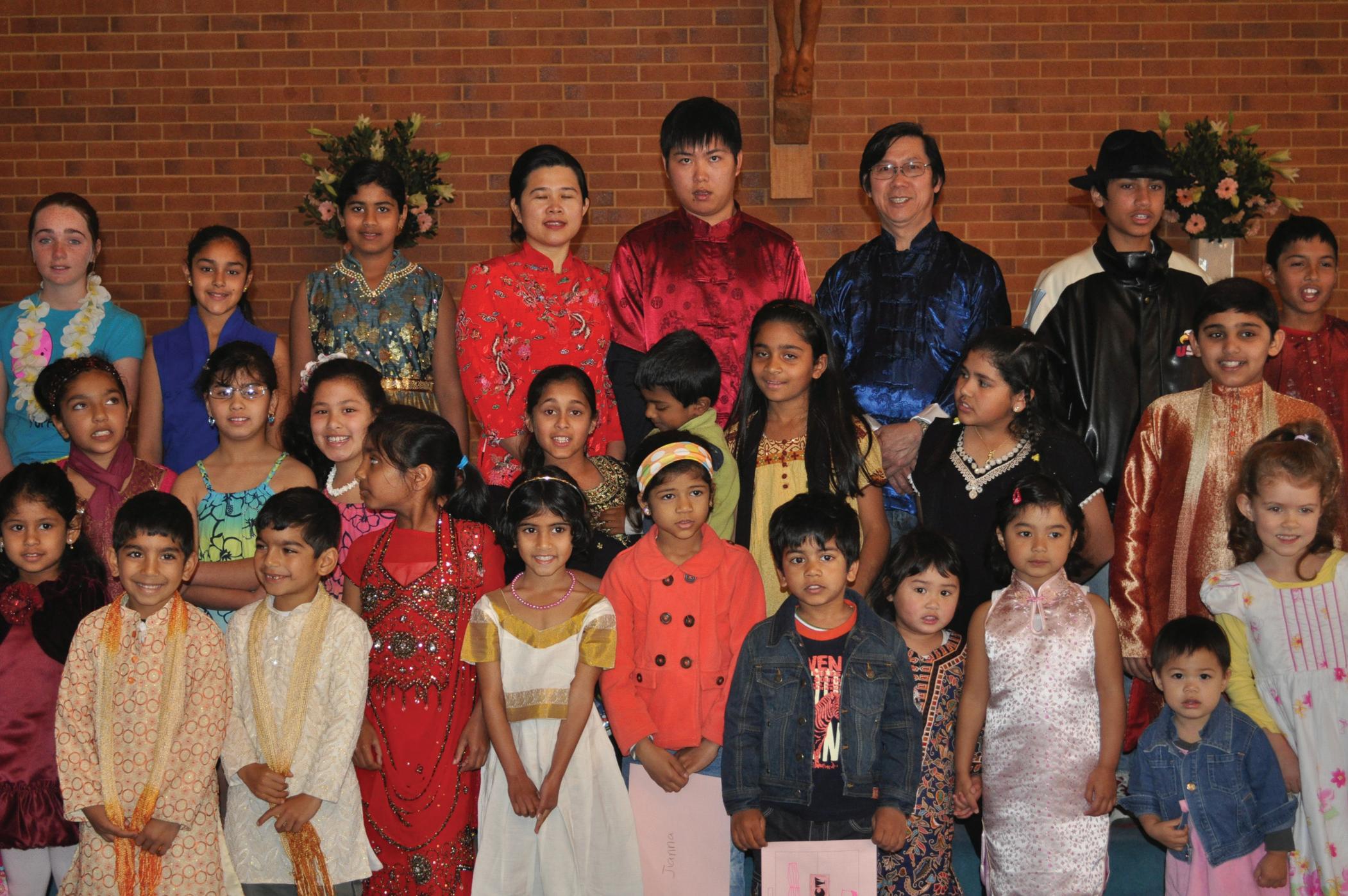 BY JILL HALL Sacred Heart School, Thornlie
BY JILL HALL Sacred Heart School, Thornlie
SUNDAY, 29 August was a wonderful celebration of the various ethnic communities that go to make our parish community.
There was our special music with the Children’s Choir led by Sandy Louis. She got us into the mood with He’s got the whole World in His hands, Heal the World
and Malo Malo; through to our gospel read in Burmese by our Assistant Priest, Fr Noel Latt; then the very pertinent sermon from our parish priest, Mgr Tim Corcoran.
“The annual celebration of Migrant and Refugee Sunday highlights the challenges faced by people from all over the world who have had to leave their homeland and come to Australia whether through conflict or persecution or voluntarily,” he said.
“The continual arrival of migrants and refugees in particular gives rise to strong emotions.
“Just a few years ago, people complained about the influx of Vietnamese boat people to Australia.
“Now, just a few years later, we have so many priests from Vietnam who go to make up and serve the spiritual needs of people in our diocese.
“Similar things could be said about other ethnic
groups now, for example, from Africa and India. We are all made in the image and likeness of God.”
A large number of our wonderful parishioners embraced and honoured their country of origin by wearing their traditional costumes.
We had a multicultural morning tea after Mass with an opportunity to appreciate a different range of cultural foods.
The parish of St Jude’s in Langford came together to celebrate the 100th birthday of Miss Margaret Alexander on 6 June.
The list of those who sent congratulations or commendations for the occasion read like a who’s who of Australian life: Queen Elizabeth, Governor General Quentin Bryce, former Prime Minister Kevin Rudd, Opposition Leader (as The Record went to press) Tony Abbott, and Premier Colin Barnett among them.
A papal blessing from Pope Benedict XVI was also presented to Miss Alexander.
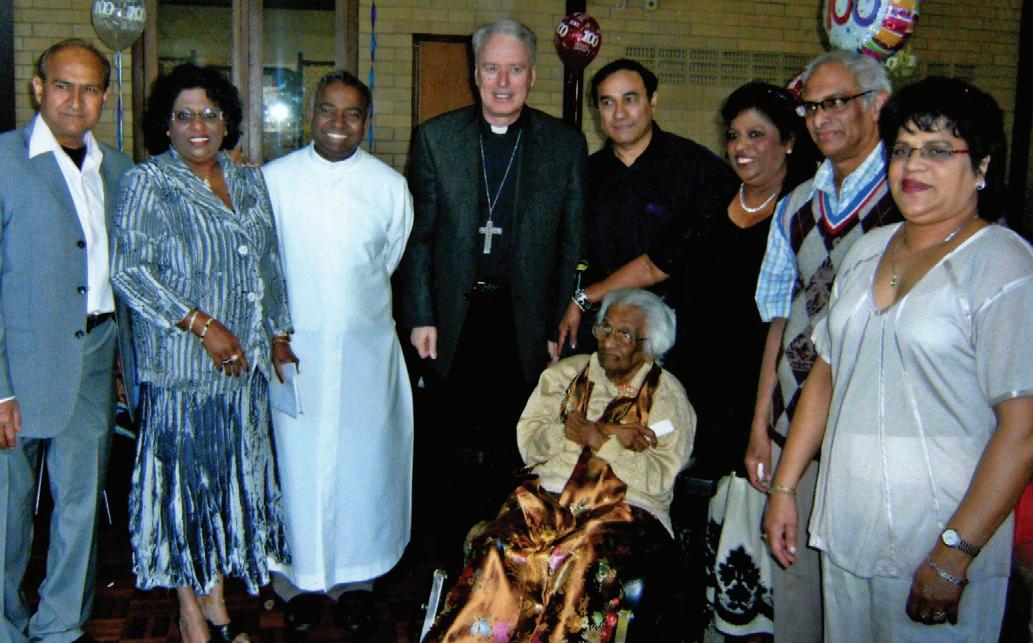
Auxiliary Bishop Donald Sproxton was on hand to concelebrate a special Mass of Thanksgiving for the occasion together with parish priest Fr Terry Raj. Over 200 family and friends joined
Alexander delivered many babies in Burma during the war years and right up until the 1970s. She never married but has twin nieces who, together with their husbands, have cared for her since she came to Perth.
She is the first family member to reach 100 years of age although her father lived well into his 90s. Miss Alexander lived with her niece Clotilda Conkers until she was 98 before moving into Gracewood Baptist Nursing Home in Salter Point.
Fr Raj told The Record that Miss Alexander is a devout Catholic who, although her memory is failing, says her morning and evening prayers every day.
Miss Alexander, a midwife who came to Australia from Burma in 1990. Miss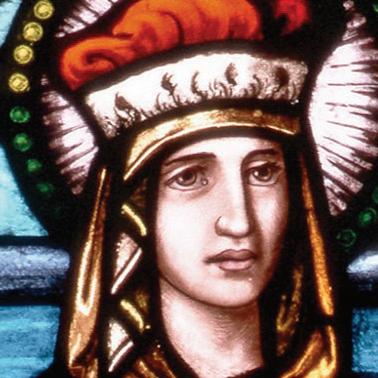


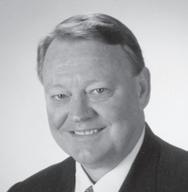
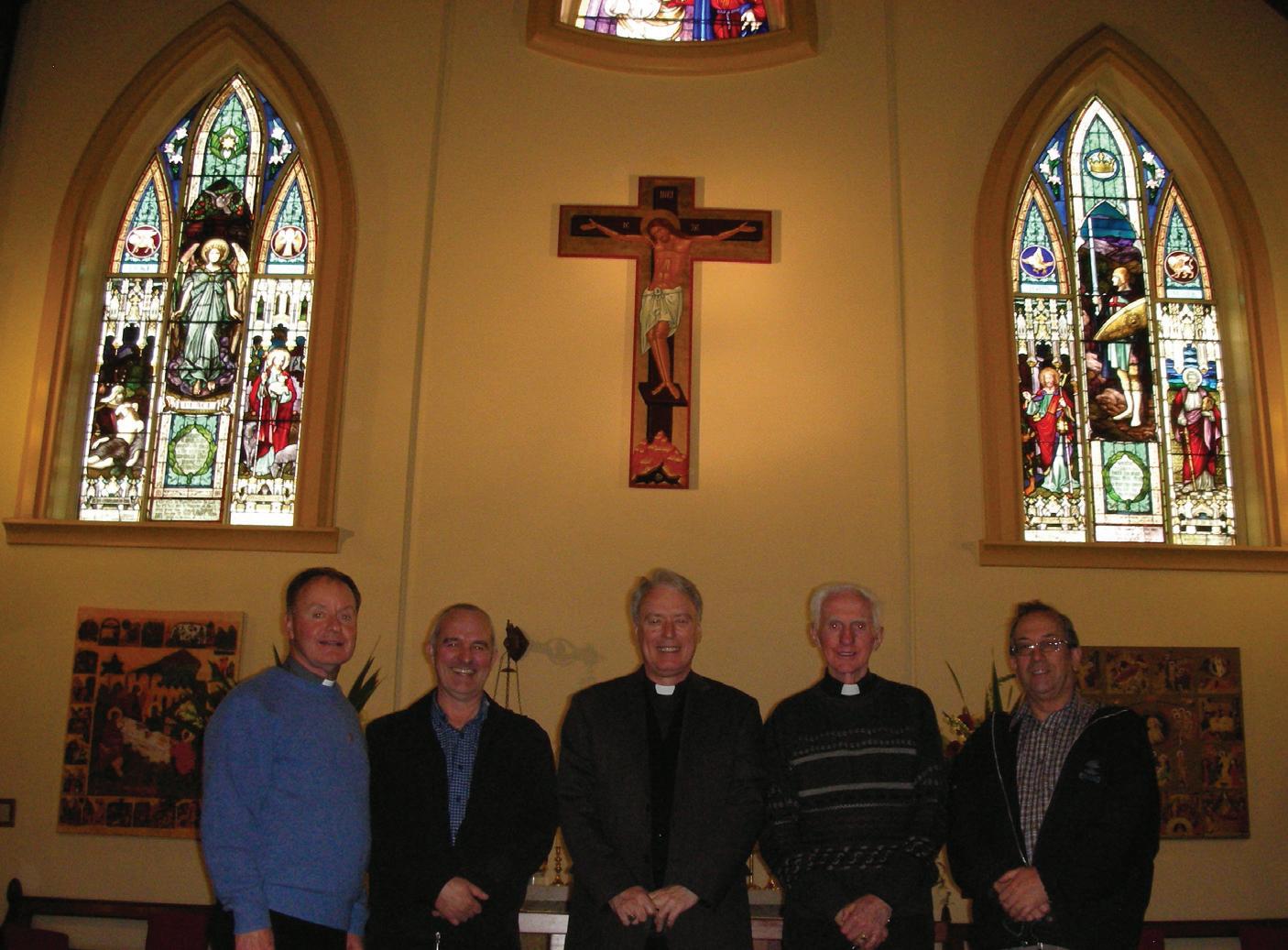
On 25 August, the new, beautiful Crucifix of St Thomas the Apostle Parish, Claremont was blessed at the 12.35pm Mass. Present (pictured above) were Fr Charles Waddell, PP, Richard Charlwood (artist), Auxiliary Bishop Donald Sproxton and neighbouring priests Frs Geoff Beyer and Theo Overberg SJ.
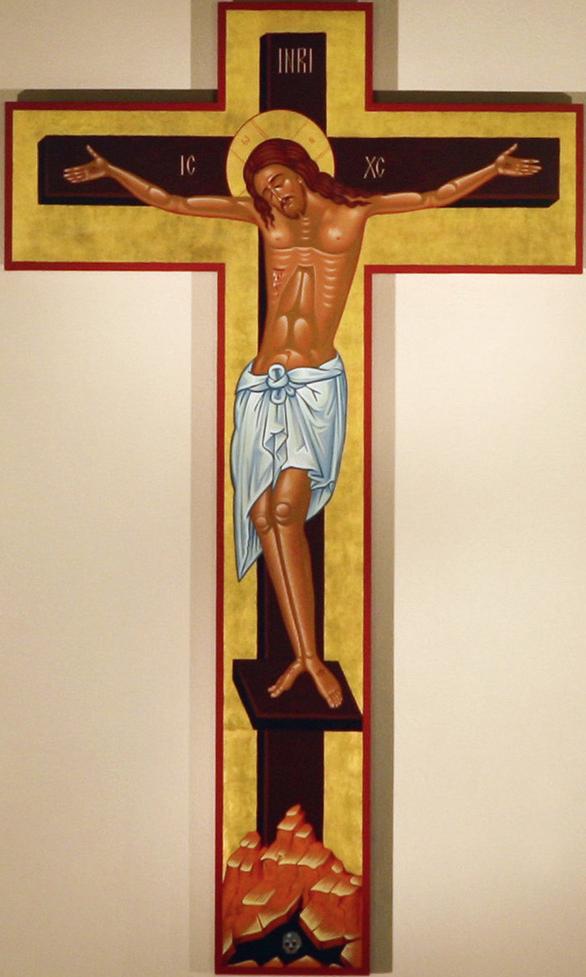

Mark



The Prayer before the Crucifix Card, above right, was handed out and is available to all by contacting the parish.
Got a story? Send Parish stories to: parishes@therecord.com.au
School stories schools@therecord.com.au Parish photos (hi-resolution) parishes@therecord.com.au
School photos (hi-resolution) schools@therecord.com.au
All other stories from parishes parishes@therecord.com.au
All other photos from schools schools@therecord.com.au
Alternatively...
Send Parish stories and photos to: parishes@therecord.com.au
OR
Send School stories and photos to: schools@therecord.com.au
Liwara Catholic Primary School in Greenwood is the Academic All Stars Champion School after winning the Tournament held at Lake Joondalup Baptist College recently.
The Academic All Stars Tournament began last year and is an all-day event that gives teams of ten Year 5 students the chance to compete against other schools including Lake Joondalup Baptist College, Currambine Catholic Primary School, Padbury Catholic Primary School, Holy Spirit Catholic School, City Beach and St Stephen’s, Carramar in a variety of disciplines.
The disciplines this year included Engineering, Games of Strategy, Drama, Art and Poetry, General Knowledge, English and Mathematics.
“As the 2010 winners, we are looking forward to hosting the Academic All Stars Tournament for 2011,” said proud teacher Clare Magee.
● The Secondary Students Youth Dance Group from St Mary’s College, Broome was recently awarded the 2010 Positive Image Award by Youth Minister Donna Faragher.
The dancers perform to promote reconciliation, resilience and respect giving its 31 participants the chance to build artistic ability, leadership skills, self-esteem and to empower indigenous youth to connect to the wider community.



This is the first time a class, group or team has won the award. St Mary’s College received a certificate and a number of digital cameras in recognition of their award.
Parishes in Perth have been invited to create banners for the Archdiocesan Conference on Scripture and Prayer for Everyday Life - SEEK2010.
The banners will be displayed at the event venue, Our Lady Queen of Apostles Parish, Riverton, for the duration of the conference from 7–9 October.
Banners should reflect the conference theme and could also showcase how the parish and its parishioners embrace the Scripture and prayer as a way of life. They should be approximately 1m by 2.4m high and designed for wall mounting.
This is a unique opportunity for parishes which have an Art Ministry to present their work to a wider audience as the conference is expected to attract participants from parishes across Perth and country WA as well as interstate.
For the other parishes, this could be the incentive needed to put together a special banner team which could eventually become an Art Ministry.
The banners will be returned to parishes after the conference and thus become meaningful artwork which can be displayed in their churches.
Deadline for submission of banners has been extended to 20 September and parishes are urged to immediately contact Barbara Harris or Su Goh on 9328 8113 or email familylife@perthcatholic.org.au to register their interest so that space may be allocated to them.
SEEK2010 is an invitation to Seek the God who is Seeking you. It will provide opportunities for everyone - adults, youth and children – to learn, experience and grow in a warm, supportive and enjoyable environment. Even the little ones are not forgotten as there
St Peter’s Catholic Primary School, Bedford Year 2 White class was recently ranked number one in Australia and number three in the world for Mathletics,
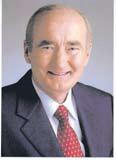

will be a crèche for the 0 to 2 year olds.
It will begin on Thursday, 7 October at 7.30pm with a keynote talk entitled Seeking the God who is Seeking You by Bruce Downes, host of the television programme The Catholic Guy. Talks and workshops on 8 October include Lectio Divina – Experience the Scriptures by Broken Bay Bishop David Walker and a special programme for youths entitled Connecting with God Daily Mary in the Scriptures, Prayer in the Family and Worship with Music will also be included.
On Saturday morning, Mass will be celebrated by Bishop Don Sproxton, Chairman of the Committee For Family and For
an interactive online competition. Mathletics challenges students from Kindergarten to Year 12. Students have access to Mathletics at school twice a week, before school and for early finishers in class. They are set tasks twice weekly by the teacher as well as before specific lessons in class. Tasks are also set for homework on their homework
Life, the conference organisers. The conference culminates on Saturday afternoon in an Enthronement Ceremony when families are invited to bring forward their Bibles for a special blessing and to “enthrone” them in a place of honour in their homes.
Brochures containing the full conference programme and registration forms are available from your parish office or on the conference website www.seek2010.org, or call Barbara Harris/Su Goh on 9328 8113. Registration is $20 for individuals and $25 for families and entitles entry to all conference events. Facilities for people with visual, audio or other special needs will be made available if requested in advance on the registration forms.
grid. The 160 computers at St Peter’s are being well utilised with Mathletics a popular activity. Year 2 teacher Karen Pertile said: “Rainforest Maths, part of the Mathletics suite, is a great teaching tool as it allows me to set students to work at a wider variety of levels and I am able to individualise each student’s learning.”
Is it true our company philosophy is “We are a friendly and efficient company trading with integrity and determined to give our customers the very best of service?”
Is it true I regularly publish testimonial letters from satisfied customers because of my tremendous reputation for outstanding service?
Is it true that most of my sales are not from direct advertising, but from personal recommendation, repeat business and reputation?.
Is it true I believe that before anyone buys a pre-owned vehicle they should choose their dealer before they choose their car and that dealer should be me?
Is it true that in 2008 I was Australia’s top selling Mitsubishi, Hyundai and Kia dealer?.
Is it true that Park Ford have just been awarded dealer of the year?
Is it true that from January to December 2008 we sold 16,881 vehicles, which was an all-time record?.
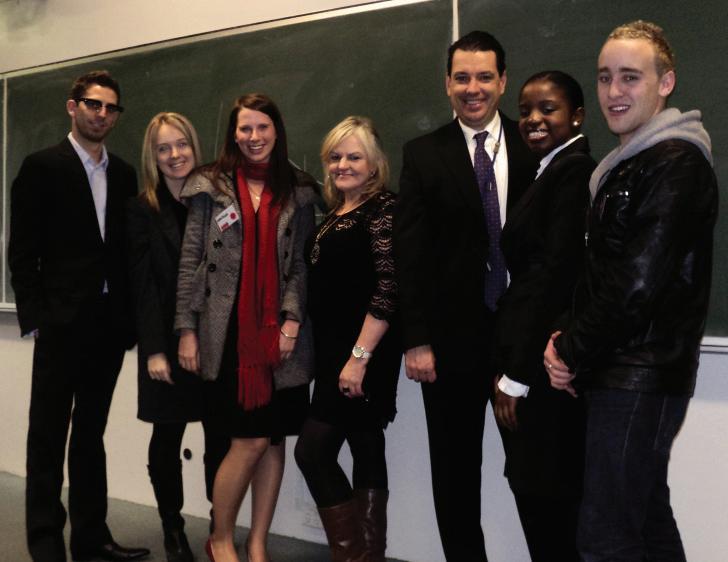
International commerce student Ngwawezi Emy-Jean Banda
of The University of Notre Dame Australia has been selected by the Brightest Young Minds (BYM) Foundation as one of the top 100 most passionate and socially conscious 18-29 year olds in the country.
Invited to participate in the BYM 2010 annual summit, Ms Banda was selected for her strong academic skills, passion to improve society, leadership, creativity and ability to come up with visionary ideas.
Based on the promotion of the idea that it is possible to be successful, powerful and responsible economic players, the BYM Foundation sees exceptional students as significant changeagents who can positively affect the pressing social issues facing Australia and the world.
Ms Banda said her chosen role as a delegate at the BYM summit had changed her life.
“The BYM summit helped me to realise that I don’t have to wait until tomorrow to make a change,” she said.
“With the right people and right attitude, our world can be made a better place to live in right now.
“One person can have a vision but with the right action and a great team, that vision can be made into a reality.”
Ms Banda said she and each of the selected delegates were exposed to socially responsible and internationally-respected entrepreneurs and corporations who gave them the tools to turn their passion into tangible initiatives. “The next step for me now is to create my own not-for-profit organisation in my home country of Zambia,” she said.
Ms Banda said she would dedicate her time to learning from other young delegates who had already established their own international organisations.
“My dream is to start two initiatives involving the building of a school for disadvantaged children and developing and implementing mobile clinics for women in rural areas,” she said.
● Dr Graham Jacobs, Minister for Water and Mental Health, launched a new Graduate Certificate in Acute Mental Health at the South Metro Area Health Service (SMAHS) in July.
A result of collaboration between Debbie Nelson, Nursing Director SMAHS and Dean of The University of Notre Dame Australia’s Fremantle School of
Nursing, Professor Selma Alliex, the course has seen 31 participants enrol.
Open to all mental health staff, the first intake included occupational therapists, social workers and nurses, all working in frontline areas of acute and emergency mental health.
Dr Elizabeth Moore, Executive Director of Mental Health, said this is the first time mental health workers in WA have had the opportunity to undertake postgraduate education to further their qualifications.
“This is a new way of offering staff academic qualifications in their chosen field,” said Dr Moore.
She emphasised the collaborative approach of industry and academia was the best outcome for patients.
In his speech launching the new initiative, Dr Jacobs said the service (Mental Health) is no better than the people on the ground.
“People delivering care need the heart for it, and then the clinical knowledge,” he said.
“This new certificate will complement practical skills,” he said.
“This course is providing essential professional training to staff across all disciplines in mental health.”
Ruby Fleck, Special Projects and Staff Development Nurse Educator Mental Health at Bentley Health Service, is enrolled in the course and spoke at the launch.
“The Graduate Certificate in Acute Mental Health at Notre Dame is particularly unique in that it links the mental health academic world to the ‘actual’ mental health coalface,” she said.
Prof Alliex said the certificate was a great stride in the direction of giving health care professionals specialist qualifications that could lead to further education, perhaps to doctoral level.
“This co-badged course will enable students undertaking it to enrol and graduate from Notre Dame,” she said.
“The study units of Contemporary Mental Health Practice, Interpersonal Communication, Managing a Mental Health Area and the Expanded Roles of Mental Health Practitioner in Emergency/Acute Psychiatry demonstrate that this content is appropriate across all mental health settings and, more importantly, is applicable to all health professionals working in mental health areas.”
National men’s initiative reaches WA to ignite men’s involvement in the Church and their own families
BY MARK REIDYThirty men gathered at St Joseph’s parish in Subiaco on 7 and 8 August in an attempt to arrest the alarming decline of males active within the Catholic Church.
Presented by “menAlive”, a ministry of laymen founded in Brisbane, the non-residential weekend sought “to bring men together, to renew their faith in God and to encourage them to become an active force of renewal in the Church.”
The Subiaco Retreat, which was the fourth to be held in WA, was made up mainly of parishioners from St Joseph’s but also included those from Whitfords, Rockingham and even Mullewa in the
Diocese of Geraldton. The weekend has already been delivered to over 2,500 men since its inception in 2003 and has successfully sparked revival in parishes across Australia and New Zealand.
“God is glorified when men are fully alive”, is the motto that the ministry have borrowed from St Ireneaus and the weekend of talks, testimonies, sharing, reflection, prayer and fellowship is designed to guide and challenge men both as individuals and as members of the Church to seek this fullness of life.
The menAlive presenters deliver their message with passion and humour, but they are serious about their message that men within the Church have lost their sense of purpose and they are determined to “awaken the sleeping giant” so that men can once more have an impact on their families, parishes and even the wider Church.
Robert Lock of Claremont said his life has been transformed by the weekend and he now prays and reads the Bible daily.
“The presentations are delivered by real men of faith grounded in a real
world, with real issues and challenges”, he shared.
“What struck me about the whole experience was the genuine authenticity of the participants and the presenters”.
Organiser of the weekend, Kim Metcalf, is excited at the response that has been ignited within St Joseph’s. He said that as a result of the retreat there are now four small groups who meet weekly for prayer and fellowship.
“These groups help build the discipline of prayer and forge strong relationships with like-minded men committed to growing in faith and action”, he said.
Kim is also establishing a local team to promote and encourage similar weekends in other Perth parishes.
The next menAlive retreats scheduled in Perth will be held at Sts John & Paul Parish in Willetton on 20 and 21 November and at Infant Jesus Parish in Morley on 27 and 28 November.
For further information on these events ring Kim Metcalfe on 0414 537 023 or go to www.menalive.org.au.



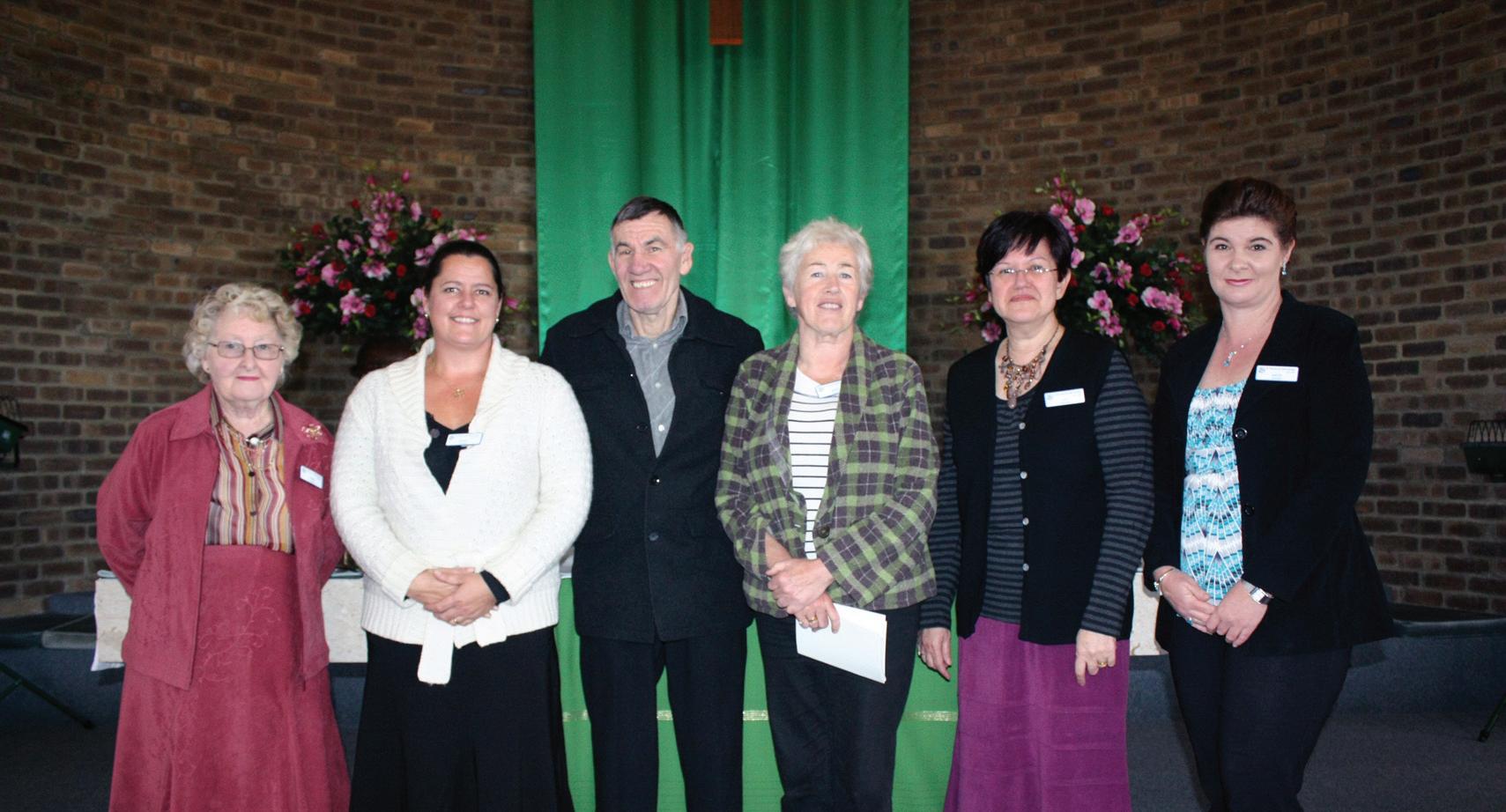
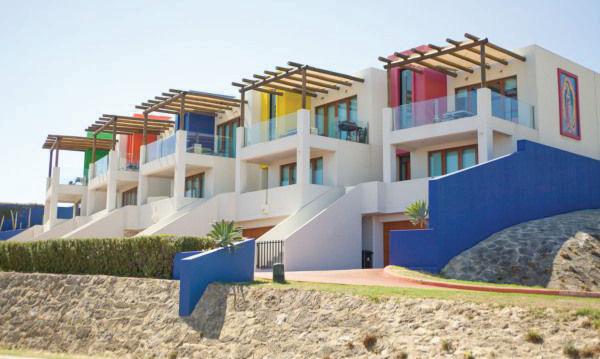
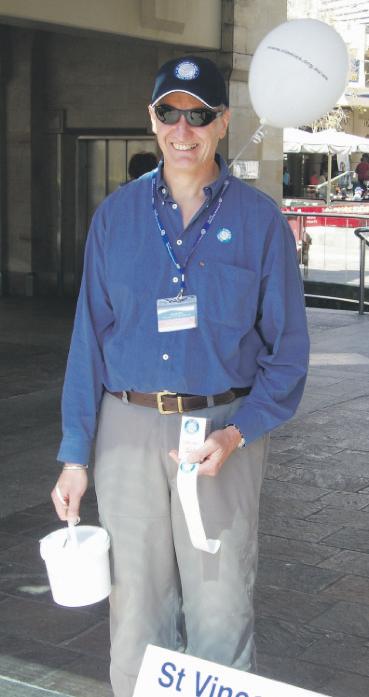



The success of Kolbe Catholic College’s VET programmes was recently acknowledged with Year 12 student Nathan Wood winning bronze in the category of Vocational Education in Schools in the Information Technology category at the recent National Worldskills Competition in Brisbane.
The National Worldskills Competition brings together more than 500 competitors from 30 regions competing in 50 trade and skill categories.
Kolbe Catholic College was also listed as one of the top 50 VET schools with students completing more than 90,000 VET hours.
St John of God
Hospital in Bunbury has announced two significant projects to benefit cancer patients and Indigenous Australians
St John of God Hospital Bunbury will build and operate a $25 million comprehensive cancer centre precinct at the South West Health Campus, resulting in greater choice, affordability and access to cancer services for South West residents.
The project has received $23.5 million of Federal and State Government funding. The twostorey, 1300m-squared centre will accommodate expanded chemotherapy services, cancer consultant suites, on-site breast screening, a pharmacy, expanded cancer imaging and therapeutic services, as well as research and teaching facilities.
Cancer services are a major area of future need for the South West due to the region’s growing and ageing population.
As a popular retirement destination, the region has more residents aged over 50 than the broader state population.
Hospital chief executive Mark Grime said the development, along with the South West Radiation Oncology Services due to open in 2011, would close remaining gaps in the region’s cancer services.
Renowned author Rev Dr Paul Glynn is hosting a retreat at God’s Farm, Cowaramup from 1-3 October.
Sydney-based Fr Glynnwho was recently awarded an Honorary Doctor of Letters by the Southern Cross University in Sydney including recognition for spiritual content in books about reconciliation – will host the retreat from 7pm on 1 October to 2pm on 3 October.
The retreat celebrates the 10th anniversary of the death of Brother Andrew, the Australian priest from Hawthorn, Victoria who Blessed Mother Teresa asked to help establish the Missionaries of Charity priesthood Order, which he devoted over 20 years to.
Due to the appetite for easily read spiritual books and his books selling at $10 each, over $1 million in profits has been sent to third world countries for medicine and educational help.
Australian priest Brother Andrew from Hawthorn, Mother Teresa asked him to help establish the Brothers of the Missionaries of Charity, which he worked on for over 20 years. Rev Dr Glynn will reflect at the retreat on the spirituality of St Francis of Assisi, on whose feast day Br Andrew died in 2000 (4 October), and on Immaculee Ilibagiza, the survivor of the Rwandan genocide.
Contact Betty of Mary God’s Farm Tel/Fax 9755 6212 for more details or for special Bus bookings ring Cheryl A/H 9409 8747 or Yvonne 9343 1897.
“Having been heavily involved in extensive consultations with a broad range of stakeholders and developing the final blueprint for the cancer centre precinct, we are confident in our ability to provide a comprehensive and integrated cancer service and ensure the best possible treatment and outcomes for our community,” Mr Grime said. “Regional patients and families often face the real issue of travel and accommodation when receiving treatment away from their home. Our proposal includes community-based, shortterm residential accommodation and regional transport services, which will be available to patients receiving radiotherapy and chemotherapy.”
Better health outcomes can be expected as patients benefit from services provided closer to home, enabling them access to all-important support networks.
It will be the only Comprehensive Cancer Centre in regional Western Australia and will attract new cancer and other specialist health professionals to the South West, providing further health services and care closer to home.
● St John of God Hospital Bunbury will also lead a partnership of South West health providers in two Indigenous health projects after being granted $1.3 million of Federal and State Government funding by the Council of Australian Governments.
The projects aim to close significant gaps in regional Indigenous health provision and comprise the Healthy Transition to Adulthood
programme, a social and emotional wellbeing programme for Indigenous youth focusing on mental health and drug and alcohol issues and Tackling Smoking, a quit smoking programme aimed at curbing the disproportionate rates of smoking in the Indigenous population.
The programmes will be delivered by indigenous health workers or those with training specific to the Indigenous population. Both will be spearheaded by St John of God Hospital Bunbury’s South West Community Drug Team, led by Manager Nicolle Warren, who said the funding would allow her team to focus on capacity building for Indigenous health workers, Indigenous youth and the wider Indigenous community.
“Our approach of early intervention with a recovery focus means we can identify young people at risk of mental health and drug and alcohol problems and work with them and their families to change the course of their lives,” she said. “Since smoking is the single biggest killer in Indigenous society, it too needs to be tackled urgently.”
Mr Grime said the hospital’s partnership with other organisations would heighten the effectiveness of programmes addressing the main health issues for the Indigenous population. “Closing gaps in service provision is a key element of our health services strategy and we have been working to improve health outcomes for Indigenous residents of the South West for many years,” Mr Grime said.
“Never see a need without trying to remedy it” lêáÖáå~ä=oìäÉ=NUST
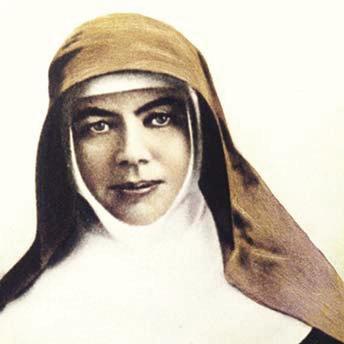
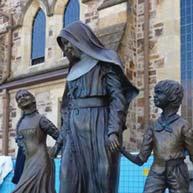
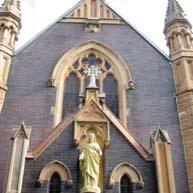
j~êó j~Åháääçé cÉëíáî~ä
qÜÉ=Å~åçåáë~íáçå=çÑ=^ìëíê~äá~Ûë=Ñáêëí=p~áåíI=_äÉëëÉÇ j~êó=j~Åháääçé=í~âÉë=éä~ÅÉ=çå=pìåÇ~ó=NT=lÅíçÄÉê OMNMK=qÜÉ=råáîÉêëáíó=çÑ=kçíêÉ=a~ãÉ=^ìëíê~äá~=áë ÅÉäÉÄê~íáåÖ=íÜáë=ëéÉÅá~ä=çÅÅ~ëáçå=ïáíÜ=íÜÉ=j~êó j~Åháääçé=cÉëíáî~ä=áå=íÜÉ=ëíêÉÉíë=çÑ=çìê=cêÉã~åíäÉ Å~ãéìë=Ejçì~í=~åÇ=`êçâÉ=píêÉÉíFK
pìåÇ~ó=NT=lÅíçÄÉê
NKMMéã=J=TKMMéã
qÜÉ=råáîÉêëáíó=çÑ=kçíêÉ=a~ãÉ=^ìëíê~äá~ cêÉã~åíäÉ=`~ãéìë
jçì~í=píêÉÉíI=cêÉã~åíäÉ
qÜÉ=`~ãéìë=ïáää=ÅçãÉ=~äáîÉ=ïáíÜ=íÜÉ=ëíçêó=çÑ=j~êó j~ÅháääçéÛë=äáÑÉI=~=î~êáÉíó=çÑ=ëíêÉÉí=ëí~ääëI=ãìëáÅI=Ö~ãÉë ~åÇ=íÜÉ=çééçêíìåáíó=íç=ï~íÅÜ=íÜÉ=Å~åçåáë~íáçå=í~âáåÖ éä~ÅÉ=áå=oçãÉI=ëíêÉ~ãÉÇ=ÚäáîÉÛ=áåíç=çìê=äÉÅíìêÉ=íÜÉ~íêÉë ~åÇ=Ü~ääëK
cçê=ãçêÉ=áåÑçêã~íáçå=Åçåí~Åí ã~êóKã~ÅâáääçéKÑÉëíáî~ä]åÇKÉÇìK~ì çê=îáëáí ïïïKåÇKÉÇìK~ì
St John of God
Hospital in Bunbury has announced two significant projects to benefit cancer patients and Indigenous Australians
St John of God Hospital Bunbury will build and operate a $25 million comprehensive cancer centre precinct at the South West Health Campus, resulting in greater choice, affordability and access to cancer services for South West residents.
The project has received $23.5 million of Federal and State Government funding. The twostorey, 1300m-squared centre will accommodate expanded chemotherapy services, cancer consultant suites, on-site breast screening, a pharmacy, expanded cancer imaging and therapeutic services, as well as research and teaching facilities.
Cancer services are a major area of future need for the South West due to the region’s growing and ageing population.
As a popular retirement destination, the region has more residents aged over 50 than the broader state population.
Hospital chief executive Mark Grime said the development, along with the South West Radiation Oncology Services due to open in 2011, would close remaining gaps in the region’s cancer services.
Renowned author Rev Dr Paul Glynn is hosting a retreat at God’s Farm, Cowaramup from 1-3 October.
Sydney-based Fr Glynnwho was recently awarded an Honorary Doctor of Letters by the Southern Cross University in Sydney including recognition for spiritual content in books about reconciliation – will host the retreat from 7pm on 1 October to 2pm on 3 October.
The retreat celebrates the 10th anniversary of the death of Brother Andrew, the Australian priest from Hawthorn, Victoria who Blessed Mother Teresa asked to help establish the Missionaries of Charity priesthood Order, which he devoted over 20 years to.
Due to the appetite for easily read spiritual books and his books selling at $10 each, over $1 million in profits has been sent to third world countries for medicine and educational help.
Australian priest Brother Andrew from Hawthorn, Mother Teresa asked him to help establish the Brothers of the Missionaries of Charity, which he worked on for over 20 years. Rev Dr Glynn will reflect at the retreat on the spirituality of St Francis of Assisi, on whose feast day Br Andrew died in 2000 (4 October), and on Immaculee Ilibagiza, the survivor of the Rwandan genocide.
Contact Betty of Mary God’s Farm Tel/Fax 9755 6212 for more details or for special Bus bookings ring Cheryl A/H 9409 8747 or Yvonne 9343 1897.
“Having been heavily involved in extensive consultations with a broad range of stakeholders and developing the final blueprint for the cancer centre precinct, we are confident in our ability to provide a comprehensive and integrated cancer service and ensure the best possible treatment and outcomes for our community,” Mr Grime said. “Regional patients and families often face the real issue of travel and accommodation when receiving treatment away from their home. Our proposal includes community-based, shortterm residential accommodation and regional transport services, which will be available to patients receiving radiotherapy and chemotherapy.”
Better health outcomes can be expected as patients benefit from services provided closer to home, enabling them access to all-important support networks.
It will be the only Comprehensive Cancer Centre in regional Western Australia and will attract new cancer and other specialist health professionals to the South West, providing further health services and care closer to home.
● St John of God Hospital Bunbury will also lead a partnership of South West health providers in two Indigenous health projects after being granted $1.3 million of Federal and State Government funding by the Council of Australian Governments.
The projects aim to close significant gaps in regional Indigenous health provision and comprise the Healthy Transition to Adulthood
programme, a social and emotional wellbeing programme for Indigenous youth focusing on mental health and drug and alcohol issues and Tackling Smoking, a quit smoking programme aimed at curbing the disproportionate rates of smoking in the Indigenous population.
The programmes will be delivered by indigenous health workers or those with training specific to the Indigenous population. Both will be spearheaded by St John of God Hospital Bunbury’s South West Community Drug Team, led by Manager Nicolle Warren, who said the funding would allow her team to focus on capacity building for Indigenous health workers, Indigenous youth and the wider Indigenous community.
“Our approach of early intervention with a recovery focus means we can identify young people at risk of mental health and drug and alcohol problems and work with them and their families to change the course of their lives,” she said. “Since smoking is the single biggest killer in Indigenous society, it too needs to be tackled urgently.”
Mr Grime said the hospital’s partnership with other organisations would heighten the effectiveness of programmes addressing the main health issues for the Indigenous population. “Closing gaps in service provision is a key element of our health services strategy and we have been working to improve health outcomes for Indigenous residents of the South West for many years,” Mr Grime said.
“Never see a need without trying to remedy it” lêáÖáå~ä=oìäÉ=NUST



j~êó j~Åháääçé cÉëíáî~ä
qÜÉ=Å~åçåáë~íáçå=çÑ=^ìëíê~äá~Ûë=Ñáêëí=p~áåíI=_äÉëëÉÇ j~êó=j~Åháääçé=í~âÉë=éä~ÅÉ=çå=pìåÇ~ó=NT=lÅíçÄÉê OMNMK=qÜÉ=råáîÉêëáíó=çÑ=kçíêÉ=a~ãÉ=^ìëíê~äá~=áë ÅÉäÉÄê~íáåÖ=íÜáë=ëéÉÅá~ä=çÅÅ~ëáçå=ïáíÜ=íÜÉ=j~êó j~Åháääçé=cÉëíáî~ä=áå=íÜÉ=ëíêÉÉíë=çÑ=çìê=cêÉã~åíäÉ Å~ãéìë=Ejçì~í=~åÇ=`êçâÉ=píêÉÉíFK
pìåÇ~ó=NT=lÅíçÄÉê
NKMMéã=J=TKMMéã
qÜÉ=råáîÉêëáíó=çÑ=kçíêÉ=a~ãÉ=^ìëíê~äá~ cêÉã~åíäÉ=`~ãéìë
jçì~í=píêÉÉíI=cêÉã~åíäÉ
qÜÉ=`~ãéìë=ïáää=ÅçãÉ=~äáîÉ=ïáíÜ=íÜÉ=ëíçêó=çÑ=j~êó j~ÅháääçéÛë=äáÑÉI=~=î~êáÉíó=çÑ=ëíêÉÉí=ëí~ääëI=ãìëáÅI=Ö~ãÉë ~åÇ=íÜÉ=çééçêíìåáíó=íç=ï~íÅÜ=íÜÉ=Å~åçåáë~íáçå=í~âáåÖ éä~ÅÉ=áå=oçãÉI=ëíêÉ~ãÉÇ=ÚäáîÉÛ=áåíç=çìê=äÉÅíìêÉ=íÜÉ~íêÉë ~åÇ=Ü~ääëK
cçê=ãçêÉ=áåÑçêã~íáçå=Åçåí~Åí ã~êóKã~ÅâáääçéKÑÉëíáî~ä]åÇKÉÇìK~ì çê=îáëáí ïïïKåÇKÉÇìK~ì
Aussie priests invited to assist at Rome canonisation ceremony of Mary MacKillop
Australian priests have been invited to assist at the 17 October Canonisation Mass of Blessed Mary MacKillop in Rome.
Fr Mark de Battista, former assistant priest at St Paul’s Parish, Camden in Sydney’s south-west, now studying at the Pontifical Biblical Institute in Rome, hopes to be one of the Australian priests chosen to assist with the distribution of Holy Communion in St Peter’s Square when Blessed MacKillop is canonised by Pope Benedict XVI.
“I certainly hope not only to attend the canonisation but I understand they always need lots of extra hands to help distribute Holy Communion and that’s what I would love to do,” he said.
Blessed MacKillop had a close relationship with Camden, having established St Paul’s Catholic Primary School in 1883 and, according to Fr Mark, her canonisation is being widely celebrated in Rome as well as at home.
“Mary MacKillop didn’t just do good things but did good things for the love of God; and that is what distinguishes a saint from a philanthropist,” Fr Mark said.
After brushing up on eight ancient and modern languages, Fr Mark has embarked on advanced study of the Holy Scriptures at the Pontifical Biblical Institute which was founded by Pope Pius X in 1909, the year Mary MacKillop died.
Last week, the Australian Catholic Bishops Conference invited formal expressions of interest from Australian priests who plan to be in Rome for the canonisation of Blessed MacKillop, who founded the Sisters of St Joseph of the Sacred Heart with Fr Julian Tenison Woods, and wish to assist with the distribution of Holy Communion at the canonisation ceremony.
Fr Paul Gardiner SJ - Postulator for the Cause of Blessed Mary MacKillop from 1985 to 2008, when he retired and handed the office over to Sr Maria Casey RSJ – will concelebrate the Mass with Pope Benedict.
Based in Rome, Sr Maria said she has been given a small allocation for priests to assist with distributing Holy Communion
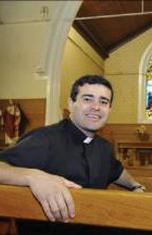
The Bill the NSW Lower House passed on 2 September allowing same-sex couples to adopt children is “profoundly unjust and reckless”, Cardinal George Pell said.
The conscience vote, carried by 46 votes to 44, is “profoundly unjust and reckless to place the desires of the same-sex couples to adopt above the needs and vulnerability of children”, the Archbishop of Sydney said.
Both parties allowed their members a conscience vote on the Bill introduced by independent Sydney MP Clover Moore, with Liberal leader Barry O’Farrell backing the Bill at the last minute. Two missing MPs could have swayed the vote.
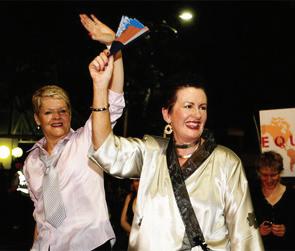
at the canonisation and encourages priests who will be among the thousands who are expected to gather in the Square for the Canonisation Mass.
“We would very much welcome expressions of interest from priests who are willing to be considered,” she says and adds those accepted would then be allocated places to ensure there is as wide a representation of Australian dioceses as possible at the canonisation in St Peter’s Square.
The priest accepted for this important role at the 17 October ceremony would be expected to attend a rehearsal in the square at 10am on 16 October and Sr Maria urges priests who are interested in making formal applications to contact Fr Brian Lucas, general secretary of the Australian Catholic Bishops Conference by emailing gensec@ acbc.org.au.
While more than 8,000 Australian pilgrims are expected in Rome for the canonisation, large contingents of pilgrims from Poland, Canada, Italy and Spain will also be there in force as the ceremony on 17 October will also include the canonisation of five other saints.
Together with Mary MacKillop, Pope Benedict XVI will canonise Fr Stanislaw Soltys of Poland, Br Andre Bessette of Canada, Sr Candida Maria de Jesus Cipitria y Barriola of Spain, and Sisters Giulia Salzano and Battista Varano of Italy.
The NSW Premier told Parliament that as a Christian and a Catholic, she supports samesex adoption, something that has defied the understanding of many Catholics.
Ms Moore agreed to amend her private member’s Bill to give Church adoption agencies the right to refuse services to gay and lesbian couples without fear they will breach the anti-discrimination laws by doing so.
Ms Moore added up the numbers and decided the exemption for faith-based adoption agencies would increase the chance of the Bill being passed, a statement from Cardinal Pell’s Archdiocesan media office said.
Labour MPs and their Liberal
and National counterparts remain divided on the issue. A further vote is needed for one amendment. The Bill still has to go to the Upper House to be ratified before it becomes law, and there are no guarantees the Upper House will allow such a Bill. Many both inside and outside Parliament oppose a Bill which grants same sex couples the legal right to adopt children. A meeting was organised in protest on 31 September by the NSW Council of Churches to oppose the Bill. Leaders of the Catholic, Anglican and Presbyterian churches together with the Wesley Mission wrote to all members of the NSW Parliament outlining their concerns. As a co-signatory, Cardinal Pell wrote: “Every child
has the right to know and be raised by his or her natural parents, as far as possible. This right is recognised by the major religious traditions we represent and has been recognised and affirmed by the United Nations Convention on the Rights of the Child.
“The ability of a homosexual person to love and care for a child as a father or mother is not in question. As a couple, however, two persons of the same sex are not able to provide a child with the experience of both mothering and fathering. This is not a case of unjust discrimination against same-sex couples, but of the capacity of the couple to provide a child with the unique and complementary nurturing of a father and mother.”
The St Vincent de Paul Society urgently needs volunteers for the annual Street Appeal on 17 September to raise vital funds for the community.
Volunteers are needed in Perth’s CBD and at various locations around the Perth Metropolitan area to ‘shake the can’ for this once a year fundraising appeal. Funds raised for the annual Street Appeal will be directed straight back into the WA community as family budgets
continue to be stretched due to increases in utility costs and more families find themselves living on a knifes edge.
“During the winter months the Society’s volunteers were out in force, responding to an increased 17 per cent of households needing assistance for vital everyday necessities like food, clothing and assistance with gas, water and electricity bills. The community’s support allows us to respond to this growing need, especially in the months leading
to Christmas,” the Society’s WA chief executive John Bouffler said.
The Society helps thousands of West Australians every year with emergency welfare assistance, youth programmes, supported accommodation for those affected by homelessness and mental illness, reasonably priced clothing and household goods, refugee and migrant support, assistance for impoverished countries abroad and advocacy for social justice issues.
Continued from Page 1
The agency is filling a key need among girls aged 10 and older in Catholic schools by providing introductory and age-appropriate sex education seminars from a Catholic perspective, she said.
NFS is already busy: it currently presents seminars and workshops in 40 primary schools and 18 colleges from Bindoon to Mandurah.
Meanwhile, in response to parent and teacher requests for educational support with early onset of puberty, NFS established the programme I am Nature’s greatest miracle for girls and boys in Year 5 last year.
“The programme is filling a great
need, especially for Year 5 girls who feel anxious and alone in their experience,” Mrs Fernandez said. NFS also runs seminars for Year 6 and 7 students in Catholic schools called Becoming a Man and Becoming a Woman, which Mrs Fernandez said are popular because they include parent evenings to preview content that educators will present to their children. These also provide the opportunity to address any questions or concerns parents may have regarding educators speaking to their children on sex.
For Years 8 to 12, NFS also presents a range of programmes for single sessions, half-day and
full-day seminars. Titles include The journey - Becoming Men and Women, The gift of our Sexuality, Building Healthy Relationships, Our Life Before Birth and Life Issues, The Natural Approach to Family Planning and ContraceptionSeparating the Truth from the Myth NFS also runs workshops for these age groups called Marriagea Lifelong, Loving Commitment and My Body, My Fertility for young women. Presentations are interactive and incorporate a variety of learning strategies. These programmes are presented in Catholic secondary schools in the areas of Religious Education, Health, Science and Early
Childhood Studies.
The programmes are part of NFS’ Family Life Education course, established in 1974 in response to the Second Vatican Council’s call for more lay involvement in passing on the Church’s teachings in a practical way, based on factual evidence.
The work of NFS, commissioned by the Archbishop of Perth and endorsed by the Catholic Education Office of WA, began in secondary schools and now includes primary, tertiary, parent education, professional development for teachers and community projects.
“The seminars are extremely well prepared and well delivered
- professional and thoroughly organised,” one teacher said, while another added that they are “highly informative and at the students’ level”.
Another teacher said he was “extremely impressed with the way the presenter engaged the class, interacted with them and inspired them to feel comfortable to respond”.
NFS is currently taking bookings for 2011 and there are some spaces left for Term 4, 2010. For more information or bookings email opm.nfs@aanet.com.au or call during office hours on 9223 1396. More info can also be found on the Australian Council for Natural Family Planning’s website, www.acnfp.com.au.
Australia’s Bishops have taken a leading role in supporting and promoting a national campaign to combat sexual abuse around the country.
Signalling “significant positive action in child protection”, the Australian Bishops’ National Committee for Professional Standards announced on 2 Sepember its support for White Balloon Day during Child Protection Week from 5-12 September - run by Bravehearts, Autralia’s leading child protection advocacy group to “help educate, empower and protect our kids”.
During this week, 1,342 Catholic parishes and 1,688 Catholic schools around Australia were invited to display white balloons on 7 and 12 September to show their support for the protection of young people through White Balloon Day.
Brigidine Sister Angela Ryan, protection and prevention officer of the Bishops’ National Committee for Professional Standards, told
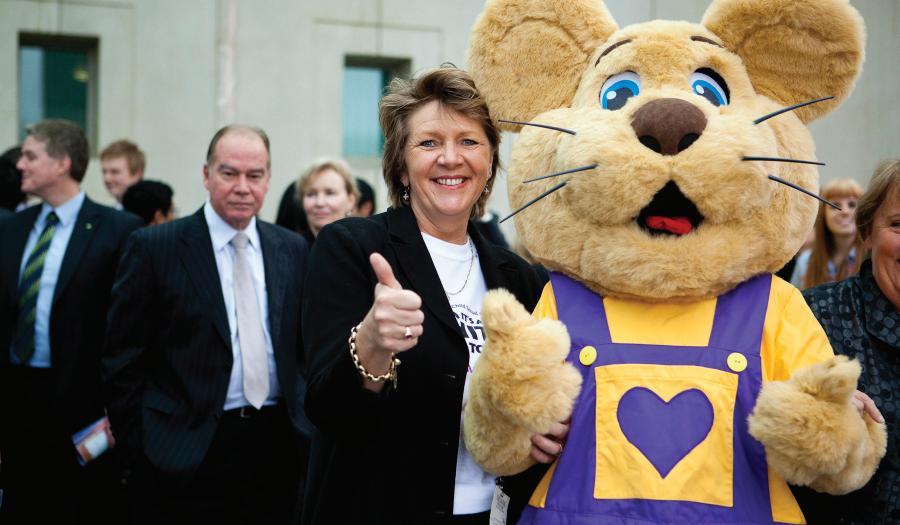
The Record that “good clergy and lay working in the Church” have also been tarred by the sexual abuse scandals of the past.
However, she believes regaining that trust may not necessarily be a long-term process as “there are so many good priests, Religious and lay teachers working in the Church today”.
Child Protection Week also aims to ensure there are codes of conduct and protocols for safe environment in Catholic schools and parishes, she said.
Sr Ryan stressed that “it’s the role of everybody in the parish to be alert and aware, and we need to learn from the past so that we protect all our people into the future”.
In part, the abuse was so widespread in the past, she said, because “I don’t think people in the Church or in wider society had an understanding of the long term effects of sexual abuse”, Sr Ryan told The Record
“In the past, if a child said something (claiming to have been abused), so many parents didn’t necessarily believe them; now they would believe what people say,” Sr Ryan said.
“The lack of trust extends beyond the clergy to all adults, and parents are much more protective because of what’s happened in the past.”
Bravehearts’ founder Hetty Johnston said in a 2 September statement that the Australian Bishops’ lead involvement in White Balloon Day – now in its 14th year - marks publicly their active involvement in being part of changing the culture of silence around child sexual assault.
“The Catholic Church in Australia has taken the lead in the Churches of Australia in changing
Seeking to identify its uniqueness in a highly competitive market, staff at the University’s Business schools recently took on the challenge and turned to Pope Benedict XVI’s quote from his June 2009 encyclical Caritas in Veritate (“Charity in Truth”): “every economic decision has a moral consequence”.
Under the leadership of Executive Dean, Associate Professor Sonja Bogunovich, staff on the Fremantle and Sydney campuses were asked to consider what was unique about ‘doing business at Notre Dame’?
Ethical behavior where profit was not always the driving force proved to be a popular theme in discussions along with the obvious point of difference, Notre Dame’s Catholicity.
It was a chance meeting with Associate Professor Bogunovich and one of the University’s Governors, Karl Morris, along with the quote by Pope Benedict that provided the answer for the schools and their search.
“Karl happened to quote ‘every economic decision has a moral consequence’ whilst making a point during our meeting and it got me thinking,” Ass Prof Bogunovich said. “It was not until I got back in contact with Karl to establish exactly where the quote had come from that I realised it was from an address given by the Pope and was exactly what we had been looking for. Everything seemed to align and a statement about who we were was found.
“Whilst we all agreed we were certainly not evangelistic as schools or teachers, the Catholicity of the University meant that teaching staff included aspects of philosophy, ethical behaviour and community services that perhaps could otherwise be left out of a standard business curriculum.
“We felt that our students were different from many other universities; in fact, many of our host organisations who take on our students for internship often say exactly that – ‘our students are different’. It’s something that often proves difficult for them to put a finger on, but generally they seem to be referring to the nature of our students and how they relate to and show support for others.”
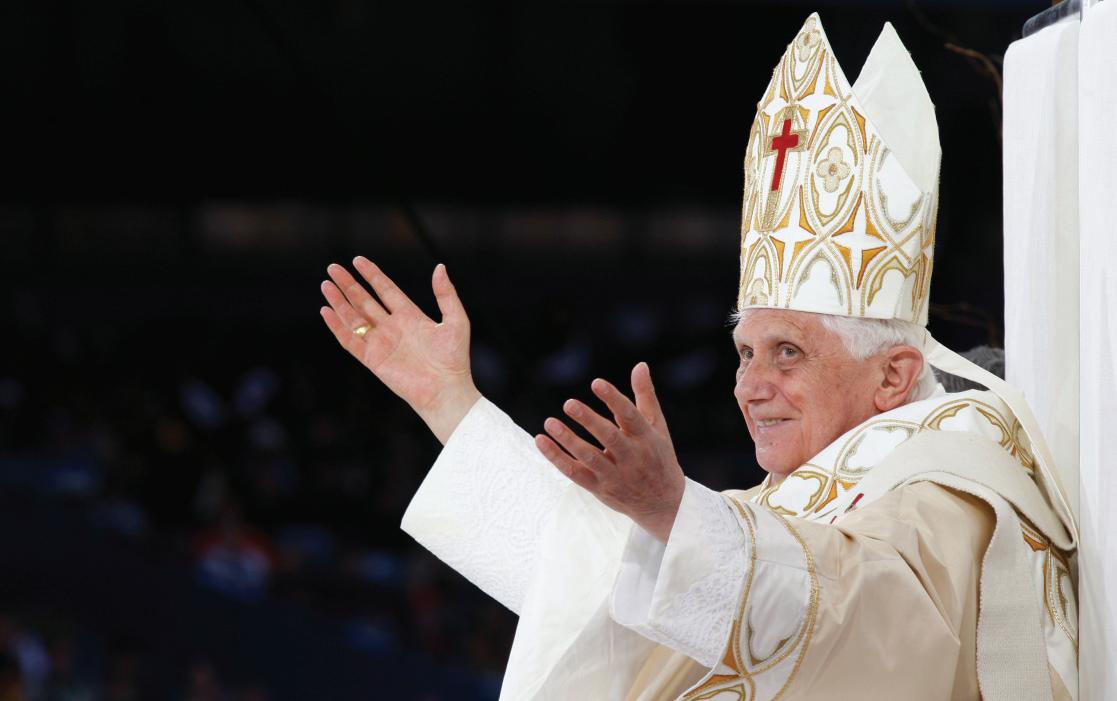
One student definitely ‘walking the talk’ is graduate Suzi Damjanovic. On graduating from Notre Dame with a Human Resource Management degree, she successfully gained a position in the training industry.
Suzi’s current role is as a Training Coordinator, writing and delivering a range of training materials for national companies in areas including occupational health and safety, working in a team environment and improving customer service.
One of her aims is to develop the confidence and proficiency of employees to improve the quality of their working environment.
“My experience at Notre Dame not only has given me skills and knowledge but has also inspired me to pursue a career in helping people achieve their career goals,” Suzi said. “I hope to be able to make a difference to the people I work with. I want to encourage them to develop and make the most of the opportunities they are presented with along the way. It is possible to be part of the business world and operate inside it in a moral and ethical way.”

the culture of silence and secrecy that has historically accompanied child sexual assault,” Mrs Johnston said.
“I am delighted to finally realise what has been a long term goal for the Bravehearts’ organisation, and hope this signals a new way forward for all churches globally.
“We applaud the Catholic Church of Australia for their bold stance and look forward to a long and effective working relationship in providing world class protection for children no matter in what environment or culture.”
Thousands of Anglican, Uniting, Independent and other Christian denominational schools and churches will join the Catholic Church for White Balloon Day.
Thousands of events are also planned across the country involving police, government departments, community groups, business groups, child care centres, churches and individuals.
This year’s theme of White Balloon day is Working together to stop child abuse wherever it occurs.
St John of God Pathology
caregiver Ashley Schoof has won the prize for the Best Honours Student in Medical Science in Western Australia, while long-serving caregiver, Helen Strano, has announced her retirement.
The honour was bestowed upon Ashley by the WA branch of the Australian Institute of Medical Scientists in conjunction with the School of Biomedical Sciences, Faculty of Health Science, Curtin University.
Ashley worked in the biochemistry department as well as metropolitan and country laboratories throughout his studies, even during his honour’s year when he was also completing his pathologyrelated project at the Telethon Institute.
He is now enrolled in his PhD and working at the Osborne Park laboratory in the haematology department.
After more than 16 years of dedicated service, Helen Strano has announced her retirement from St John of God Pathology.
She has played an instrumental role literally from her very first day in 1994 when she worked through the night to establish a pathology lab at the Hollywood Private Hospital.
The previous lab operators closed the lab at 6pm and Helen had the new lab up and running by 7am.
A SJOG statement said that Helen embodied the Mission and Values of St John of God in her work and in her interactions with colleagues and patients, pouring her heart and soul into delivering the best possible care and service at all times. She has also been a trusted and respected mentor to many up and coming scientists including Ashley, the statement said.
The term ‘the Fourth Estate’ to describe what we would call today the media is usually attributed to the Irish statesman, Edmund Burke, but has also been attributed to the British politician and historian, Lord Macauley. Commenting on the opening up of the British House of Commons to journalists, Burke is supposed to have turned to some colleagues on one occasion and remarked that while there were three Estates in Parliament, “in the Reporters’ Gallery yonder, there sat a Fourth Estate more important far than they all.” Burke’s comment, no doubt, was an astute summing up of the power of the written word to influence the public mind and even the course of politics.
There is a kind of a mystique about the media today, however, which is really a myth, and that is the widespread assumption that the media really matters at all. Perhaps another way to define the problem is to point out that while the media is clearly capable of enormous achievements for the common good in issues of justice, politics, economics and numerous other fields, in essence it has at almost every opportunity squandered the privilege and the opportunities that come its way daily in the modern era.
Ironically, it is the media that constantly trumpets its own importance as public watchdog and moral guardian which is the most susceptible institution in society to manipulation. Its key problem is that despite the noble light in which it so often portrays itself and its clear sense of its own importance and superiority, the blank reality is that at the end of the day the commercial media ultimately exists for only one reason: commercial success. It is the dollar and not, in the end, truth, that so often matters. The brutal reality of this one fact cannot be repeated too often and goes a great way to explaining why, in a nation like Australia, we have media that are key informers of public information and key shapers of attitudes, opinions and conclusions which so often end up doing nothing better than pedalling distortion and gossip. A greater and more widespread understanding of the unimportance of journalists and their opinions and news values would constitute an extremely positive development in Australian culture.
PO Box 3075
Adelaide Tce PERTH WA 6832
editor@therecord.com.au
Tel: (08) 9220 5900
Fax: (08) 9325 4580
The primacy of shaping publications to maximise profit for shareholders rather than to convey the most important and useful news may well prove to have been one of the most unbalanced developments of modern society. The very organisations that needed to always maintain professional standards and balance responsibility and concepts such as the common good in assessing and reporting news have been historically unable to resist the temptation to outbid rivals and competitors in ever more eye-catching but unimportant news.
The problem is, therefore, that it is clearly not the media which is in control of itself. This has resulted in an ever more self-distorting phenomenon made all the more sinister because of the clearly understood importance of the ground it occupies as an informer of public opinion. This is not to argue that the media is useless: clearly, on occasion, it is of some use. But it helps to remember that, like a vapid schoolgirl, it is also vain, shallow, empty and self-obsessed although, unlike her, apparently incapable of self-improvement.
Just as the Irish press, to take one example, recently went into a national frenzy over the release of a convicted rapist despite the fact that all the relevant assessment and procedural boxes appeared to have been ticked by authorities, Irish Press Ombudsman John Horgan was forced to remind listeners during a lecture that the primary role in protecting society against criminals belongs to the police and the courts, and should not be outsourced to the media. The problem today, one may note, is that the media behave as if they don’t know this and often act as if they don’t care.
“Is the sentence passed by the media always life?” he was reported to have asked. “Is someone who has been convicted of a criminal offence and has served his sentence always a criminal, and not entitled to basic human and civil rights?”
He contrasted favourably the “reticence” of countries such as Sweden and Holland about publishing information on people involved in criminal trials with the amount of media attention these cases attract in Ireland. This reticence was justified, he said, because the public shame arising from media publicity was arbitrary and selective, and furthermore involved “collateral damage” to innocent parties and could even create a risk to the life of the criminal.
He pointed out that the Irish tabloid media’s offence was not that it was light and shallow but that it actively distorted, dissembled and grossly exaggerated the significance of events. What is undoubtedly true in the Irish case is just as clearly often true in Australia. When this pattern is constantly repeated by media organisations, the end result can only be detrimental to the common good and to individual lives.
For normal people, the media is now a significant problem and getting worse. Its metastasising into an often-malignant or irresponsible force, obsessively fixated on fame or sporting prowess, especially in the entertainment and values it promotes to children, is a direct confrontation and challenge to the rights of families as they attempt to raise their children to see the world as it really is. The pity is that it could be so much better, so less mediocre, so much more informative, especially by helping us to turn our gaze towards other people with greater problems than our own and other situations far more important. The problem is really one both of of standards and intellectual capacity. At least one of these problems is solvable. Theoretically, the other is too.
transcendent, mystical, sacred or holy. So it is right that we should approach death with respect and reverence”.
My inexpert and rather dispassionate view is that the proposed “Voluntary Euthanasia” bill presently before the parliament has been conveniently packaged as a solution to a problem from the ‘too hard’ basket.
Finally, I say that bioethicist Dr J Parkinson, barrister P Quinlan and Prof Watson were prophetic in their analyses and conclusions.
Excellent reporting of the recently held UNDA sponsored forum on Euthanasia and Palliative care. A timely voice crying out in the wilderness, perhaps? Full credit to the prominent front page lead in your headline statement by Prof Watson courageously drawing a line in the sand. I felt so heartened – a shot in the arm for drooping spirits!
Two noteworthy interventions occurred during question time. First, there was the question: “Why was there no representation at the forum of the ‘Yes for euthanasia’ case.” In reply, forum panel barrister Mr P Quinlan pointed out that early in the debate he had disseminated to every member of the WA legal profession his 8,000 word position paper, hoping for responses. None, however, was forthcoming.
Then an elderly Japanese gentleman stood up and bravely declared that palliative care in WA was and is far better than that practised in Japan. The gentleman said he would stay in Perth rather than go back to Tokyo. This prompted Prof Watson to note that he would use the gentleman’s testimony in future.
I recall Dr D Bridge (RPH palliative care physician) writing about a year ago in The West Australian: “The processes of birth and death are so awesome and profound that many would describe them as
JB Tjia WillettonIseek to reinforce the article by Anthony Paganoni CS in The Record of 18 August 2010 entitled, “Confronting The Crisis”. I recently read an interesting article by Paul Stenhouse in the 4 February 2010 publication of Annals of Australasia. The following are excerpts from that article. “Paedophilia is a deeply entrenched psychological disorder that has afflicted our world since human records first began to be kept … it is spreading exponentially by feeding on the immediacy - and gratification offered by modern electronic media …. these same electronic media - have launched an unprecedented - attack on the Catholic Church and the Pope …
In a recent - 2008 - US report, “Child Maltreatment” by the Department of Health and Human Services - 60,253 different perpetrators of sexual abuse of minors from 50 states were identified. 56 per cent were parents or other relatives; 8.8 per cent were a parent’s unmarried partner - priests listed were 0.03 per cent of the total.
In a 1990 study by the United Methodist Church, 41.8 per cent of clergymen reported unwanted sexual behaviour by a colleague or pastor; 17 per cent said that their own pastors had sexually harassed
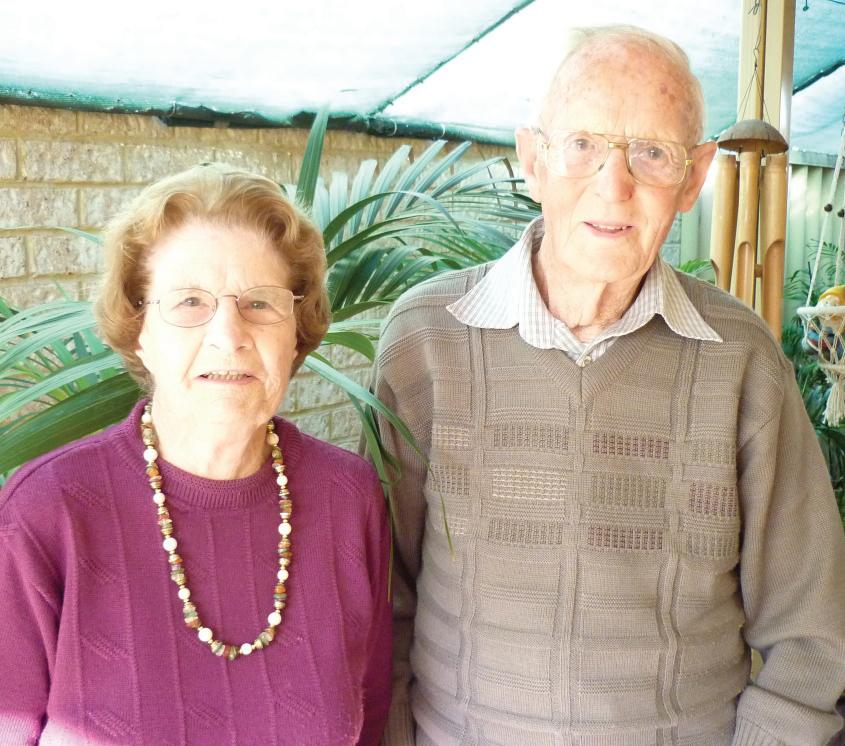
them. Obviously this is not just a Catholic problem.”
Brian Digby Cockburn CentralIt seems to me (and several others I know) that the main sin one can commit these days is to ‘judge’ that someone has committed a sin or wrongdoing. One gets a bit tired of hearing this from the “pulpit”.
It seems that people can do whatever they like nowadays (eg receive Communion even if living in a state of fornication with a ‘partner’ rather than a husband or wife, even if one graces the door of a church very infrequently on Sundays, even if one advocates abortion) but one must never admonish or suggest that one should not receive Communion. Oh no! This would be judgemental. So one just lets it go and, in effect, condones it.
Amazing.
Why bother to try to teach children about sin? We all go to heaven, apparently, regardless of the lives we live. The only sinners are those who are ‘judgemental.’
But this attitude is really relativism, which Pope Benedict has declared to be the greatest danger facing Christians nowadays. Relativism assumes that nothing is wrong: it’s up to the individual to decide for himself or herself if it’s right or wrong for him or her. What’s wrong to me, relativism asserts, might be right for someone else.
That is not Catholicism: sorry, but it’s not. There are absolutes. We need to hear more about the one, holy, Catholic, Apostolic Church and its faith. Isn’t ‘to admonish the sinner’ a Spiritual Work of Mercy?
This does not mean that we go ‘overboard’ but let’s not have this relativism - please.
Jerome Gonzalez Willetton
Students from St Dominic’s School, Innaloo recently met AFL superstar Matthew Pavlich, captain of the Fremantle Dockers Football Club. The students heard him speak about leadership and the importance of goal setting.
St Dominic’s School Principal, Sam Fontaine, said, “Matthew related the challenges of being a leader on the sporting field to the challenges children face as leaders within their school.
“He also spoke about family values, the respect he has for his parents and about his school days in Adelaide where he attended Catholic schools.
Classified Ads
Short, sharp, brief. Get your message across.
“They know who he is, many want to be like him and now they can admire him for his qualities as a leader beyond the football field.”
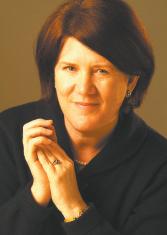
Is ‘bringing God down to our level’ with trite liturgies akin to Hebrews worshipping a golden calf? Much parish music today may be lowbrow, but is it worth it just to make people happy?
Leading Australian theologian TRACEY ROWLAND ponders the unwitting mediocrity of the age
In London, people speak of “happy-clappy” liturgy and, in Sydney, of Hillsong liturgy. When he was a Cardinal, Pope Benedict XVI used the expressions “sacro-pop” and “utility music” to refer to much the same thing, and he fired several broadsides against it.
In various publications, he endorsed the ideas in Calvin M Johansson’s Music and Ministry: A Biblical Counterpoint. Johansson identifies a tendency of liturgists to oscillate between the extremes of aestheticism (a preoccupation with beauty for its own sake) and pragmatism (music used as a message lubricator, sweetener or psychological conditioner).
In other words, pragmatism is the attitude of the cleric who says “the music might be a bit low-brow but it’s what people like.”
According to Johansson, the pragmatist “emasculates the Gospel by using commercialised music to sell it.”
Similarly, Ratzinger used the expression “utility music” to describe pop music used as a carrot to “get people into church.” He called the intellectual defence of this practice “pastoral pragmatism.”
In his books The Feast of Faith and A New Song for the Lord, one can find passionate criticisms of “sacro-pop,” “parish tea-party liturgies,” “pastoral pragmatism,” “primitive emotionalism” and “utility music.”
In a lecture delivered to the Church Music Department of the State Conservatory of Music at Stuttgart, Ratzinger further spoke of “puritanical functionalism” (the idea that we “have to keep it basic for the people”) as a “first millstone around the neck of Church music,” and the “functionalism of accommodation” (Church music must follow the norms of contemporary mass culture) as “the second millstone.”
In making these judgements, he acknowledged his debt to Theodor Adorno who argued that “the fundamental characteristic of popular music is standardisation.”
Ratzinger described standardisation as “incompatible with the culture of the Gospels, which seek to take us out of the dictatorship of money, of making, of mediocrity, and brings us to the discipline of truth, which is precisely what pop music eschews.”
He rhetorically asked whether it is a pastoral success when Catholics are capable of following the trend of mass culture and thus share the blame for its making people immature or irresponsible?
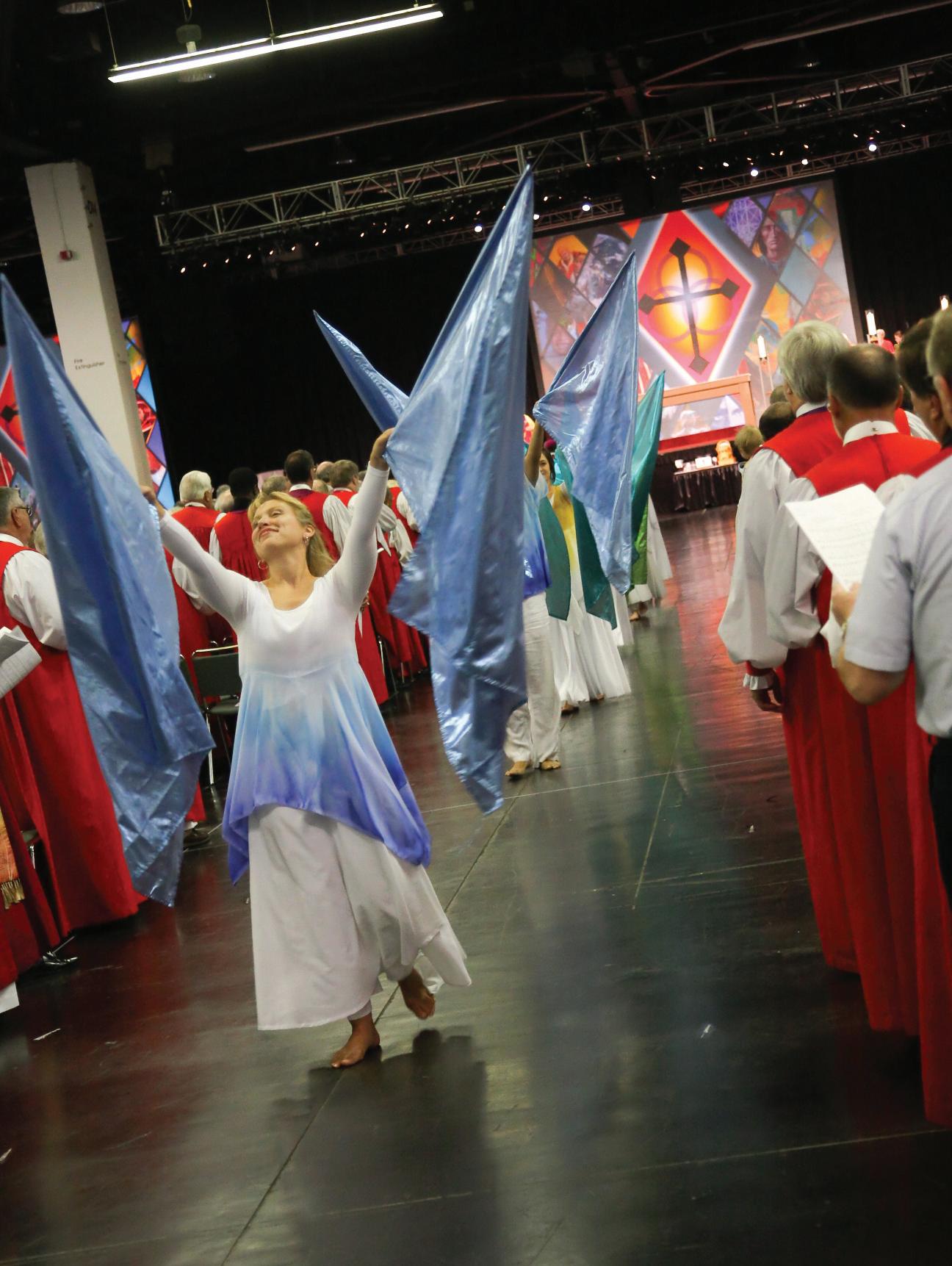
a number of excellent parodies which explain, more directly than any extensive theological analysis, what’s wrong with sacro-pop.
Here is a slightly modified version of Gather Us In:
Gather us in, the rich and the famous Gather us in, the poor and obscure
Gather us in, the slightly eccentric
And all the late-comers out there by the door
Gather us in, the hairy and balding
Gather us in, the skinny and fat, Gather us in, the chic and the frumpy and anyone wearing a big flowered hat
Gather us in, the handsome and homely
Gather us in, from near and from far,
And don’t forget the man in the Holden
Who dropped off his wife and is parking the car
Gather us in, the Pies and the Swans fans
Gather us in who do not like sports
Gather us in from every direction
But keep out the thongs, the singlets and shorts.
Even in its pre-parody form, it is obvious that the account of the relationship between God and the human person which one finds in Gather Us In and similar sacro-pop songs is completely different from that to be found in, for example, Let All Mortal Flesh Keep Silent or Firmly I Believe and Truly One does not have to be a theologian to discern the difference. Sacro-pop lacks the pathos of the great hymns of the Christian tradition and it diminishes divine glory. There is not the same sense of awe and of self-transcendence and only the most oblique references to the Incarnation, Passion and Redemption.
Sacro-pop fails to do justice to the principle that whatever the similarities between God and the human person, the dissimilarities are always greater.
The English philosopher Roger Scruton makes very similar criticisms to Ratzinger.
In an address delivered at Cambridge University on the “morality of pop,” he argued that much contemporary popular music arrests people in a state of adolescent emotional development.
With reference to the rock music industry and in words that could have been written by Ratzinger, he argues, “This music is not designed for listening.
“It is the accompanying soundtrack to a drama, in which the singer, strange as it may seem, becomes something like the sacred presence of a cult, the incarnation of a force beyond music, which visits the world in human form, recruiting followers the way religious leaders recruit their sects.”
While rock liturgies with their drums at full bore are dying out, “sacro-pop” would seem to be the dominant genre of music at suburban parish Masses. The basic
stance of the Pope is that sacropop is unworthy of God and of people made in God’s image.
He has also written that people who argue that liturgy should be about bringing God down to the level of the people are committing a form of apostasy, analogous to the Hebrew’s worship of the golden calf.
Sacro-pop might be softer music than the music of the 70s rock liturgies, but it still fosters a high level of “emotional primitivism.”
A typical hallmark of a sacropop “hymn” is that one could just as easily be singing it to one’s lover as to God. The first time I heard a choir of teenage girls singing Breathe by Michael W Smith, I felt as though I was attending a floor show. Half a dozen girls swayed and indeed almost swooned as they crooned the refrain, “And I’m desperate for you / And I’m lost without you.”
God only gets into the song obliquely by reference to a “holy presence living in me,” which given
the rest of the lyrics need not necessarily be the Holy Spirit.
Another hallmark is that one sings the song as if one were God. For example, the song You are Mine contains the lyrics: I am the Word that leads to freedom I am the peace the world cannot give I will call your name, embracing all your pain Stand up, now, walk and live.
Several hundred anti-sacropop people have signed up to membership of the Society for a Moratorium on the Music of Marty Haugen and David Haas.
According to the Society’s moderators, you are a de facto member if you grit your teeth whenever you hear any of the following - Come to the Feast, Gather Us In and Sing out, Earth and Skies. Though not by Haugen or Hass, but of the same genre, one could add Come as you are to the list.
The archives of the Haugen and Haas Moratorium website contain
Thus, even if one tries to defend Breathe by reference to the Augustinian notion that our hearts are restless until they find their rest in God, one has only to compare Breathe to something like Come Down O Love Divine to discern the significant difference.
The words, “And so the yearning strong, with which the soul will long / Shall far outpass the power of human telling; / For none can guess its grace, till he become the place / Wherein the Holy Spirit makes His Dwelling” are not easily confused with a love song for one’s boyfriend.
Perhaps the idea of a moratorium on sacro-pop is at least one American cultural initiative that is worth importing to Australia?
I suspect that if a poll were taken, one might find that the banality of sacro-pop is less of a liturgical carrot than a liturgical repellent.
Tracey Rowland is the Dean of the John Paul II Institute for Marriage and Family, Melbourne. Her most recent books are Ratzinger’s Faith: The Theology of Pope Benedict XVI (Oxford University Press, 2008), available from The Record Bookshop, and Benedict XVI: A Guide for the Perplexed (T & T Clark: London, 2010). This article first appeared on ABC Online on 6 September.
Travel writer Paul Maughan recently traversed Northern Ireland, following in the foosteps of no less
Most people think Ireland’s biggest export is Guinness. It’s not, it’s St Patrick. Surely he is the world’s most celebrated saint - there would be few people on this planet to whom he is not known.
Around the world, on 17 March, the millions celebrate his Feast Day, but in doing so unfortunately proclaim the day more than the man.
He was a unique individual, possibly Scottish by birth, though little hard information is known about him. Born around 400AD he was taken captive as a teenager in Wales to work as a slave in Northern Ireland. Eventually escaping, he returned home and trained as a priest. Politically astute and charismatic, within a decade he was to become a Bishop.
After receiving a vision (via an angel) begging him to return to Ireland, he did exactly this in 432AD and then, as the saying goes, “the rest is history”. Patrick was to make an indelible impact on his adopted country, dying there (probably on 17 March) somewhere between 460 and 490AD.
The legend of Saint Patrick grew quickly after his death and you can relive it in great detail today by visiting the Counties of Armagh and Down in Northern Ireland.
In fact, if you visit the attractive mediaeval town of Downpatrick, just 30 minutes south of Belfast, the world of St Patrick comes to you at the highly acclaimed St Patrick Centre, a modern multimedia exhibition centre that’s a treasure trove of information on St Patrick’s life and legacy. The highlight here for many is a spectacular, seat-of-your-pants, 180-degree helicopter IMAX theatre presentation. I loved it; I think St Pat would have loved it as well.
This is the only permanent exhibition in the world dedicated to telling the story of St Patrick and is a must-see destination for tourists with an interest in Christian Ireland.
Within easy walking distance of the Centre is Patrick’s burial site at Down Cathedral, a worldwide pilgrimage site for over 1,500 years.
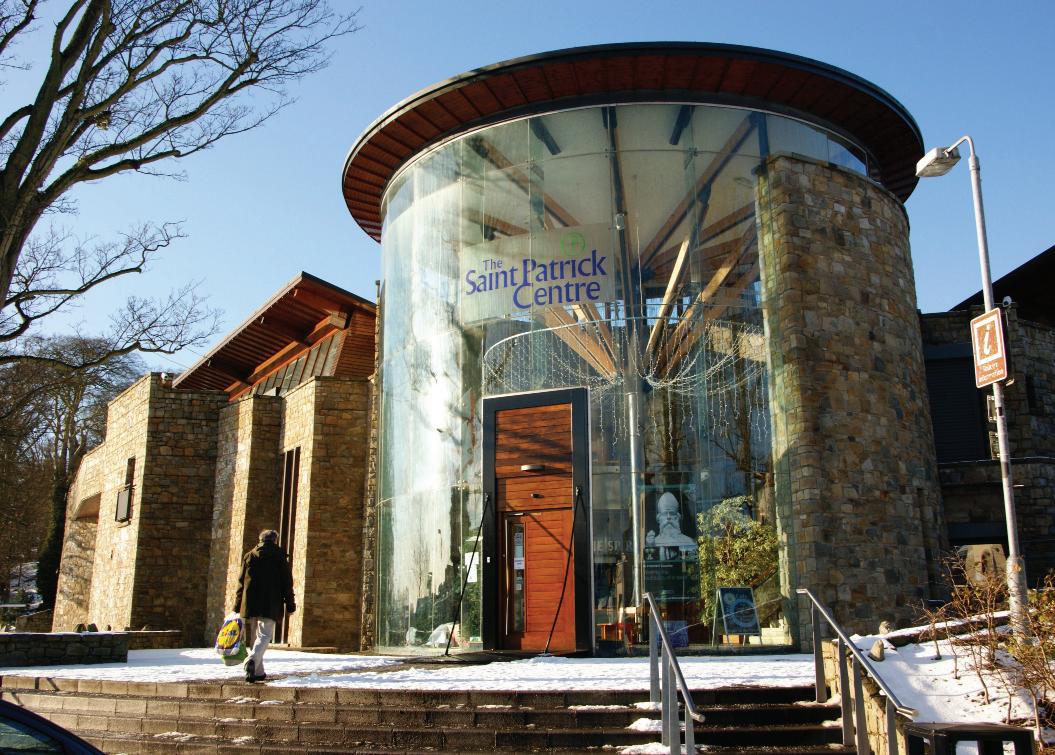
About an hour away is the spiritual capital of Ireland, the ancient hillside city of Armagh, founded by the Saint and the seat of both Catholic and Church of Ireland Archbishops. No visit here is complete without dropping in on both St Patricks’ Cathedrals and browsing the interesting Saint Patrick’s Trian Visitor Complex which tells the story of this bustling city and Patrick’s work here.
This saint got about and today a tourist trail follows his footsteps in a round trip of about 150km that spans the Counties of Armagh and Down. It’s an easy but fascinating journey back through time and history with maps and literature available from Tourist Offices across Northern Ireland.
While on this journey through this, the heartland of the Irish soul, you will be staggered at the ethereal beauty of the place. Bewitching views of lakes, woodlands, mountains and sea will set your spirit soaring.
For decades, because of “the Troubles”, Northern Ireland has largely been overlooked by tourists. Well, let me tell you that it certainly hasn’t been overlooked by God. Nature rules here; it’s drop-dead gorgeous – a tiny area of beauty in a country that overflows with blockbuster scenery.
During our recent visit to County Down, we set ourselves up in the idyllic coastal town of Newcastle. It sits astride a sandy beach in the shadow of the magnificent Mountains of Mourne (that truly do sweep down to the sea). Immortalised by the poignant Percy French song, they stand proud with striking rugged peaks and remain uninhabited, peaceful and unspoiled.
Uniquely for a mountain range, most of the high summits are grouped together in a compact area only 10km across, making them ideal for exploration and hiking with tracks running like a roller coaster from peak to peak.
Accommodation across Northern Ireland is rigorously held to high standards but if, like us, you stay in Newcastle at the magnificent Slieve Donard Resort Hotel, you will have no qualms. Set in 2.5 hectares of manicured grounds overlooking the beach and Royal County Down, Ireland’s finest golf course and one of the world’s Top Ten for golfers, the huge stunning red brick building is all about class, comfort and indulgence.
It was here one afternoon that my wife and I enjoyed an elegant High Tea that was genuinely memorable, not only because of the magnificence of the tea and service but also for the atmosphere of the setting. Outside, snow flurries dissolved into the sea while we sat indoors comfy and warm watching the action through huge picture windows that seemed to transport the great outdoors right to our very table top. Magnificent.
You know, I reckon St Patrick was right on the money when he picked this part of Ireland for his home base. I’d love to have a cuppa with him at the Slieve Donard today and chat about the old days and see what he thinks of modern Ireland too. And I’d like to talk to him about snakes ... definitely snakes.
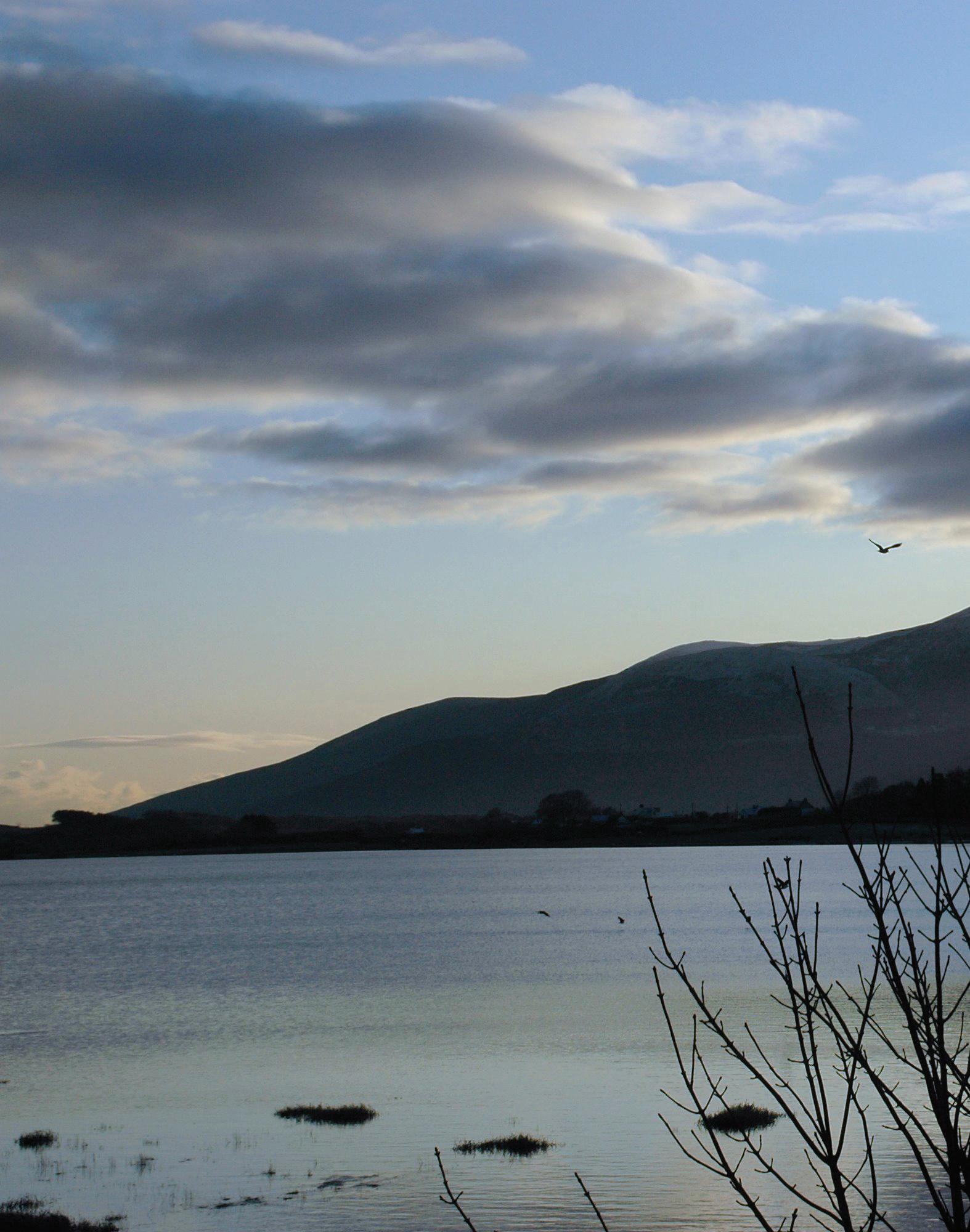

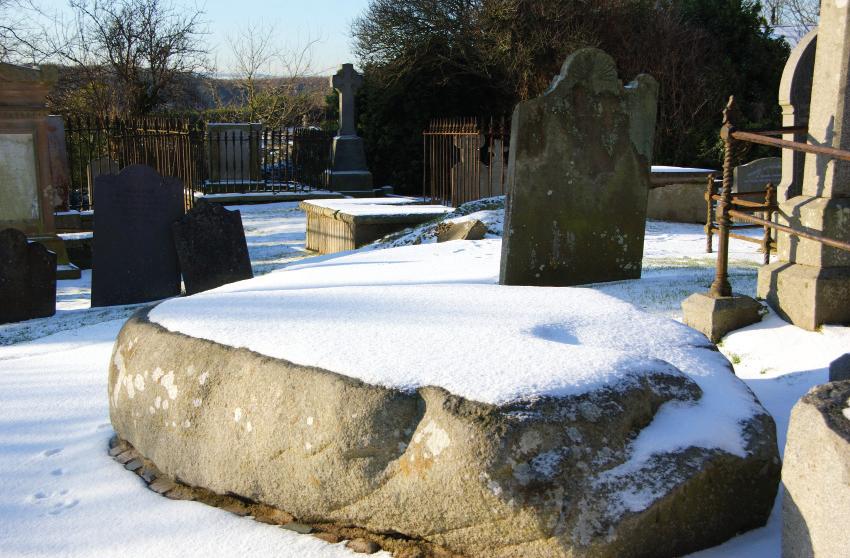
s a g i a n t t h a n S t P a t r i c k ... s a giant than St Patrick ...
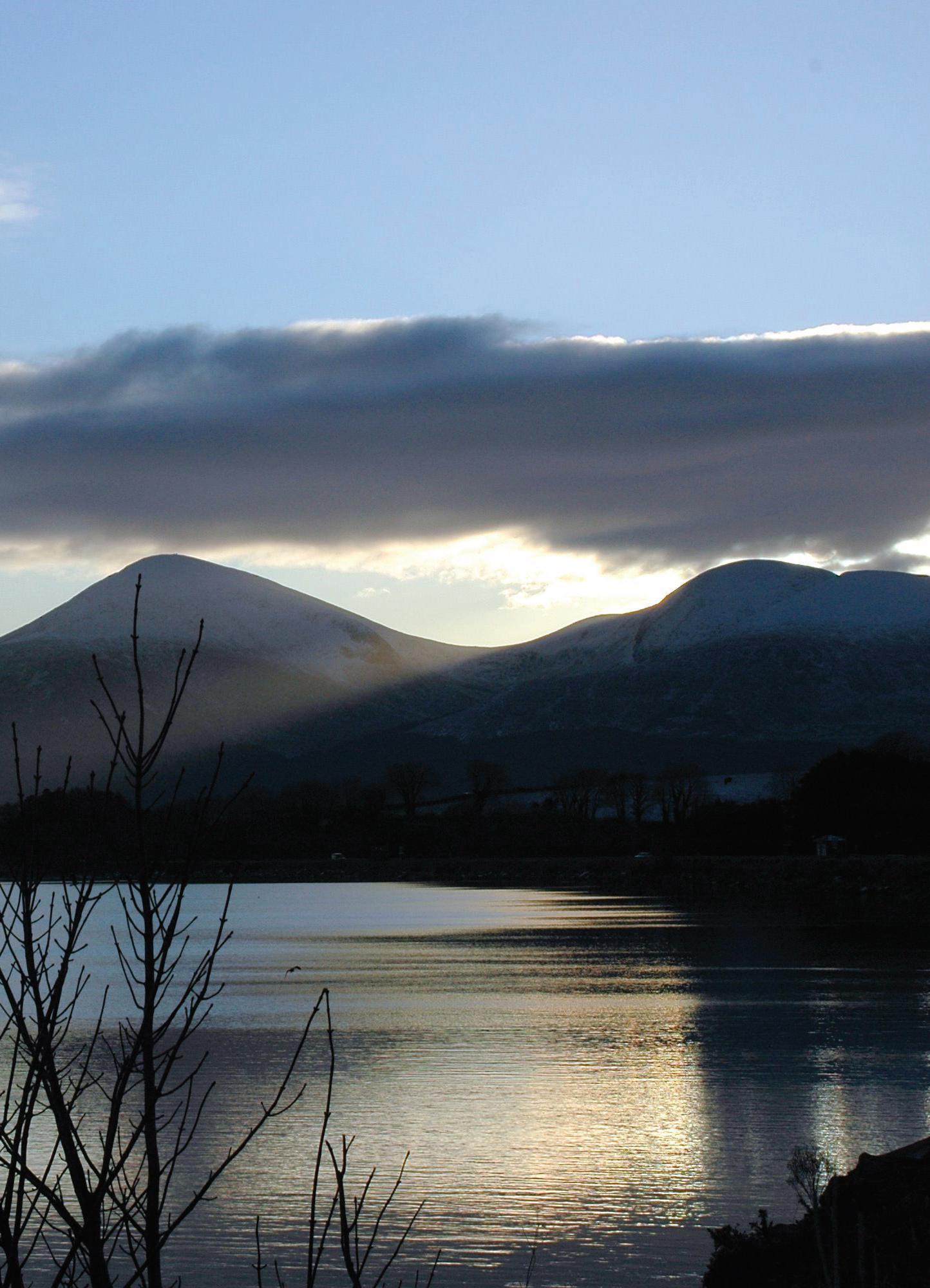
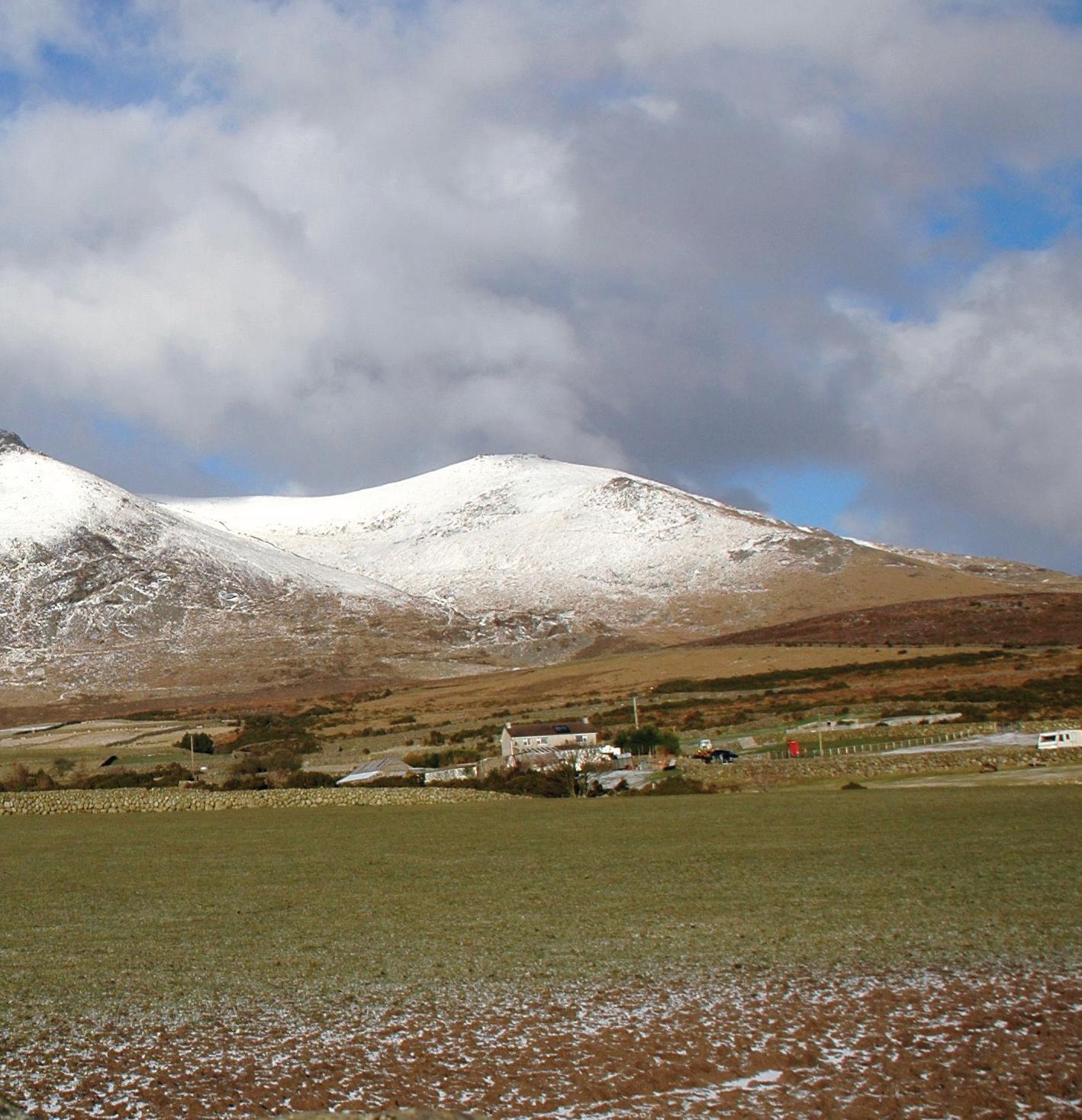
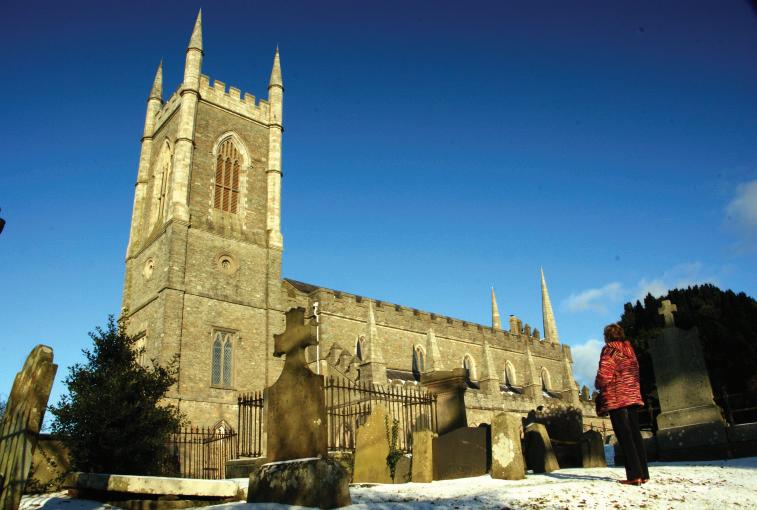



West Australian students with special needs are benefiting from a collaborative approach in Catholic schools around the State
Seton Catholic College Year 10 student Georgia Macpherson has reaped the benefits of a collaborative approach to an individualised learning journey that caters for her special needs.
Seton’s Education Support Coordinator, Veronica Harding, is one of many professionals in Catholic schools all over the State who are dedicated to equipping students such as Georgia with the skills needed for success in school and in life.
Catholic schools cater for over 2,000 students with disabilities in special education support centres, as well as providing interventions and strategies in the general education environment for struggling students.
While Seton teaches students strategies for dealing with learning weaknesses, just as much attention is given to helping them discover and enhance their strengths. Georgia’s great love is singing and at Seton she is an enthusiastic member of the college choir, as well as a smaller choral ensemble. She also loves reading, playing maths games on the computer and playing soccer and is excitedly looking forward to an upcoming camp in Broome in September.
“I love Seton because everyone is so nice and there’s always someone to help me,” says Georgia. “I’ve got lots of friends here.”
For Veronica, this atmosphere of genuine inclusion is what special needs education is all about: “Of course resources and professional expertise are important,’ she says, “but it is the willingness to create a welcoming community, where people feel valued and are able to make a valuable contribution and where the dignity and worth of the individual are not only respected but celebrated, that creates a truly inclusive school”.
These ideals are the hallmarks of Seton’s thriving Education Support Unit which caters for 25 students, with less-intensive support provided to a further 20 students. “There’s just a wonderful feel at Seton,” CEOWA consultant Sue Seeber said.
“It’s a special kind of energy you can sense the minute you step in the door.”
That special energy is harnessed every year in an innovative initiative that has now become a college tradition. Looking for a way to celebrate the students’ achievements over the year and to farewell and honour graduating Year 12 students, Veronica Harding developed an intensive arts immersion programme, culminating in a special end-of-year Mass.
“We felt the need to give something to these students and what greater gift is there than the Eucharist?” she said. “A liturgical celebration led by the students themselves is a wonderful thing”. The preparation for the Mass incorporates a range of learning areas and is guided by the students. “These students are very intuitive,” said Veronica. “We tap into that intuition every year to choose a theme for the Mass”.
Last year, two local artists with considerable experience working with young people with special
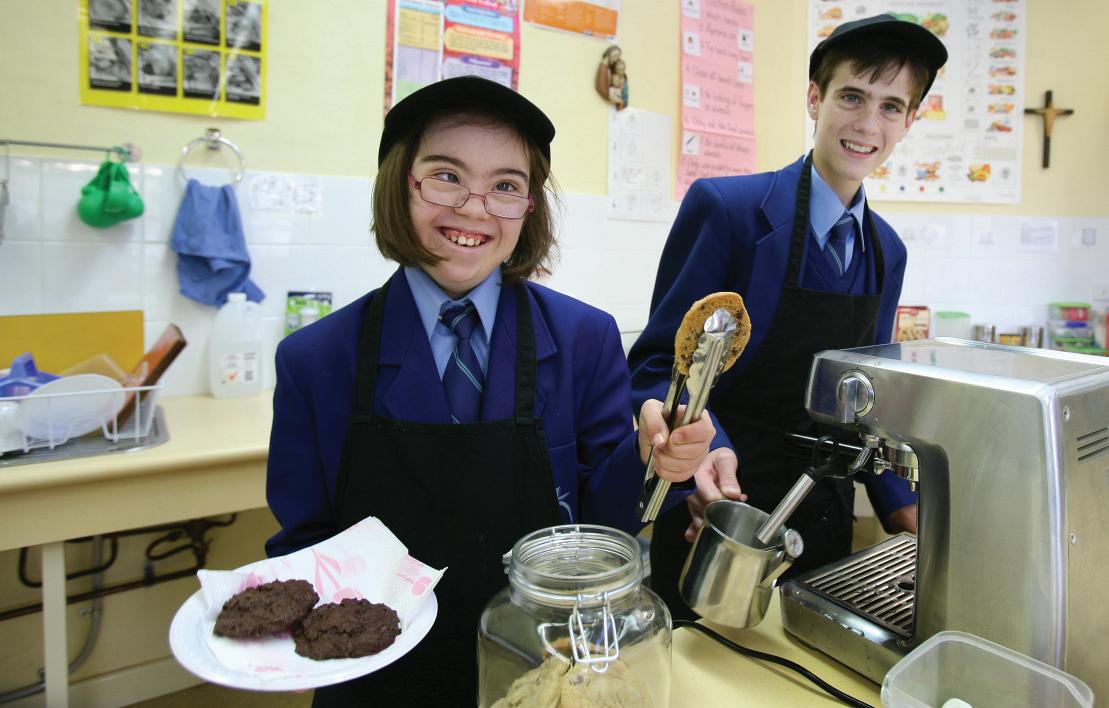

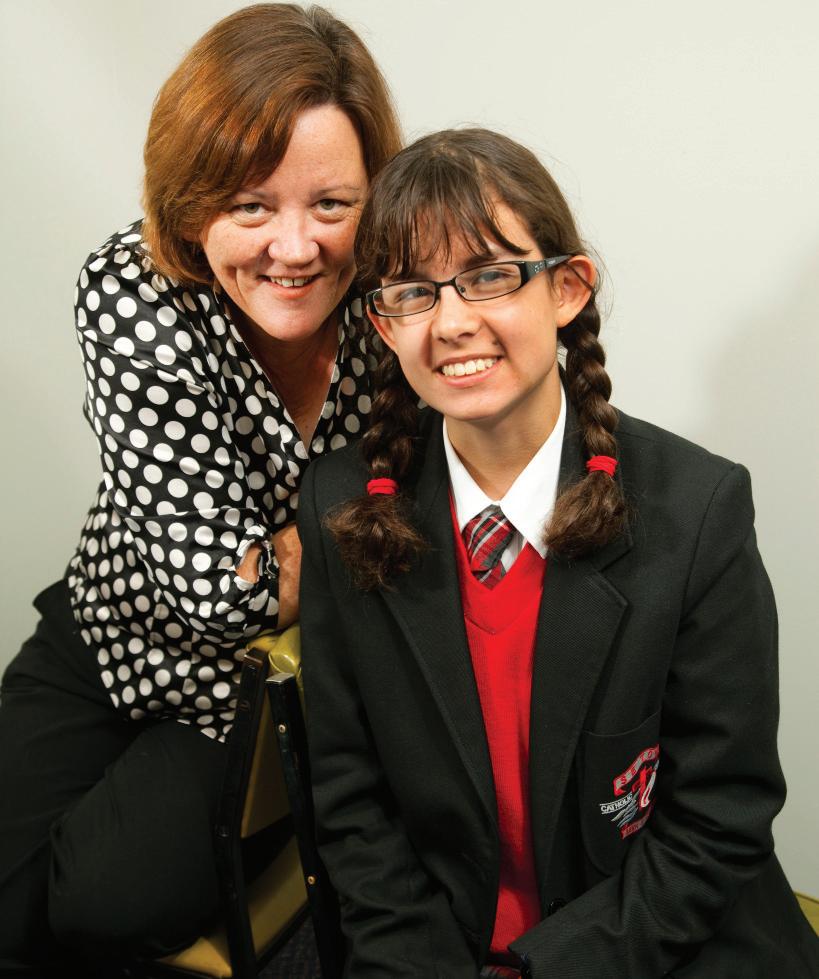
needs were engaged to conduct a three-week intensive arts immersion programme. Francis Italiano, a well-known community artist, led a collaborative visual arts process where all students contributed to the outcome of the project.
Wanting to create a gift to present
to each of the four graduating Year 12 students, the group worked together to create intricate friendship weavings. Time was given to brainstorming where students identified colours and textures that symbolised each Year 12 student and their
There are currently 2255 students with disabilities in Catholic schools in WA, 21 schools with dedicated Special Education Support Centres and 12 specialist Students with Disabilities Consultants employed by the CEOWA.
This shared celebration with families is a central element of the event, with the chapel pews packed with family members, friends and Seton staff.
The uplifting and much-loved tradition that the Education Support Unit Mass has become epitomises all that special education at Seton is about: developing and celebrating the potential of young people within the loving embrace of a genuine community.
It’s this concept of being embraced by a community that underpins special needs education in Catholic schools across Western Australia according to Julie Hornby, Students with disABILITIES K-12 Team Leader. “Both our Mandate and our Gospel demand that we seek out and embrace the most vulnerable among us,” she says. “The vision statement for our team calls us to assist Catholic school communities to meet the true intent and spirit of Catholic education in regard to the educational, spiritual, physical and social needs of students with disabilities.”
Julie is excited about what lies ahead. “It’s a fantastic team with a huge range of different strengths” she says, “We’ve got specialists in Autism, in Down Syndrome, in assistive technologies, in research and policy – there’s enormous skill and commitment here.”
Since its inception, special needs education in the Catholic system has been led by passionate and devoted specialists committed to creating better outcomes for young people with disabilities. Special education coordinators, teachers and assistants work in partnership with students and families, supported by a team of CEOWA consultants with instructional, clinical and operational expertise.
Despite the challenges of the work, CEOWA consultant Sue Seeber says that the difficulties are far outweighed by the rewards: “We get to see kids succeed, see teachers believe in themselves and see the other students learning how to treat people. We’re so lucky to witness these things.”
qualities. At the Mass, the weavings were brought to the altar with the bread and wine and later presented to the Year 12 students.
Another weaving exercise involved photographs of the students and their friendship groups, with the finished works lining the walls of the chapel. Guided by Francis, the students also wrote petitions for the Prayers of the Faithful and a final reflection. All of these centred on the themes and symbols of the Mass and were read by the students.
Jacob Lehrer, an experienced dancer and choreographer, led a number of workshops in which the students choreographed and rehearsed a dance for the Mass. The weaving theme was incorporated through the use of coloured ribbons, which symbolised the connectedness of the students.
“I loved the Mass,” recalls Georgia. “The weavings were so beautiful and I loved learning our special dance. My family really loved it too.”
“We have a part in teaching a young person how to live,” adds Julie. “Seeing a human being who is vulnerable being embraced by a community and supported to grow is incredible. The gains are so significant.”
While continuing its core work of supporting schools, this year the team will focus on increasing collaboration with the Learning and Teaching K-12 Team, looking at new funding processes, providing more intensive and culturally relevant support to Kimberley schools and enhancing partnerships with other sectors. They will also be keeping abreast of local and international research and continually looking for ways to improve.
One enormously positive initiative Julie has implemented so far is the convening of regional meetings with groups of schools coming together to share information and ideas. The collaboration between primary and secondary schools has been particularly useful in planning for and supporting the transition of students to secondary school. CEO CIRCULAR
TRIER, Germany - The Catholic Church in Germany will require all employees who work with young people to obtain police checks and undergo psychiatric tests when necessary under new guidelines published on 31 August.
“The new guidelines now extend to clerics, Order members and other employees in the Church’s service,” said Bishop Stephan Ackermann of Trier, the Bishops’ representative for sex abuse issues. “They depend on people actively serving the Church to follow the necessary procedures and offer help whenever possible.”
Bishop Ackermann said the key point in the guidelines, which took effect on 1 September, concerned the Church’s duty to notify State law enforcement bodies of all abuse accusations. He said the new text went further in preventing cover-ups, as well as in encouraging victims to report abuse and enhancing child protection.
“It was important for us to ensure the best support for prosecutors, while at the same time meeting requirements for protecting victims,” he said at a news conference in Trier.
“The terrible facts and experiences of recent months have shown our previous guidelines from 2002 were not precise enough in all points. This is why we have taken another critical look at them and tightened them up,” he added.
The document was prepared by a seven-member team appointed in February.
The 55-point text was shown to experts and victim groups, as well as members of a national roundtable on sex abuse convened in Berlin in April by Germany’s Justice, Education and Family
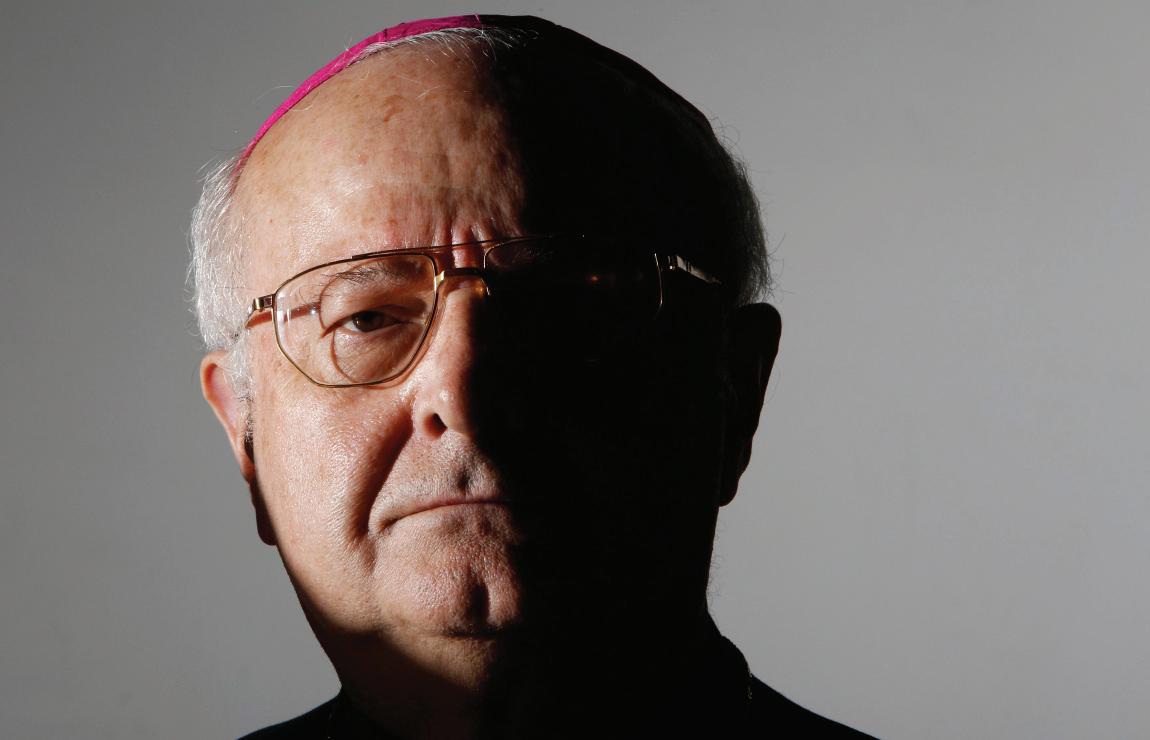
Affairs ministries. It was approved on 23 August by the Bishops’ permanent council.
The guidelines require dioceses to appoint independent ombudsmen, not linked to the diocesan authorities, to represent the rights of victims and to set up a permanent team of legal and psychotherapeutic experts to advise on abuse cases.
Clergy and laypeople working with children and young people in Church institutions will require police statements certifying no previous abuse convictions, while those suspected of abnormal sexual tendencies will have to undergo psychological tests.
Clergy and lay Church staffers incriminated in molestation will be barred from further work with children and checked by psychiatrists to ascertain where they may safely be employed.
Financial compensation for vic-
tims is not specified in the guidelines and will be determined during upcoming talks with the government.
Bishop Ackermann added that the Bishops’ conference would discuss procedures for applying the guidelines in all 34 Catholic dioceses at its autumn plenary.
“In the past months, I have received more than 500 letters, directly or via my Bonn office, from disappointed victims recounting traumatic experiences at the hands of the Catholic Church, as well as from experts offering us help and advice,” said the Bishop. “It is all the more important now to thank the victims honestly, once again, for taking the courageous steps of bringing these appalling events to light, and thus helping expose and fight the crime of sexual abuse more effectively.”
Since January, when claims of abuse were made against staff at a
Jesuit-run college in Berlin, many German dioceses and Religious Orders have faced accusations of abuse by Catholic priests.
In February, the Bishops’ conference opened a hotline offering advice, therapy and contacts for victims. In May, Pope Benedict XVI accepted the resignation of Bishop Walter Mixa of Augsburg after claims he beat children at a Church-run orphanage before he was a Bishop.
In June, a German prosecutor said he was investigating accusations against the president of the German Bishops’ conference, Archbishop Robert Zollitsch of Frieburg. The accuser said the prelate had been an accessory to the abuse of children in the 1960s and had allowed an abusive priest to return to his diocese in 1987.
The Archdiocese rejected the allegations, accusing the media of sensationalism.
OXFORD, England - A spokesman for Belgian Cardinal Godfried Danneels said the transcript of an April meeting with a victim of clergy sex abuse has been interpreted out of context.
“There was no intention of any cover-up,” said Toon Osaer, spokesman for the Cardinal, who retired in January as Archbishop of Mechelen-Brussels.
“Seen from today’s perspective, the Cardinal realises he was rather naive to think he could help the family in question reach a reconciliation,” he told CNS.
“At that moment, however, the family didn’t want to make public something they’d kept secret for 24 years.”
Belgium’s Flemish-language De Standaard and Het Nieuwsblad dailies published an alleged transcript of the Cardinal’s April meeting with relatives of the nephew of Bishop Roger Vangheluwe of Brugge. The unnamed nephew was abused by his uncle before

and after the Bishop’s 1985 consecration.
Osaer told CNS that Cardinal Danneels had not kept notes from the “informal private meeting” on 8 April and could not verify the transcript’s accuracy. He added that he believed the text was “broadly correct” but said the context had been “totally different” than newspapers currently claimed.
“This was a totally confidential meeting, and the family intended to keep it all within the fam-
ily,” the spokesman said. “This is why the Cardinal tried to see if a reconciliation was possible. He asked the victim if Vangheluwe should resign immediately, pointing out that we would then have to provide an explanation for his departure. He said if the resignation could be left for another year, it would not be necessary to bring the family’s internal affairs into the open.”
Osaer told CNS that Cardinal Danneels had offered his advice because the family “disagreed sharply” over the best course of action.
Bishop Vangheluwe resigned on 23 April after admitting abusing his nephew for 13 years.
According to the text, Cardinal Danneels drew a distinction between “public and private punishment” of the Bishop and suggested “forgiveness and forgiving” to the unnamed victim, who said he would leave the decision about going public to the Cardinal.
In a 28 August statement to Belgian newspapers, Osaer said Cardinal Danneels “condemned
and profoundly regretted” the abuse by Bishop Vangheluwe but also regretted the April meeting had been recorded without the knowledge of those present.
In a May pastoral letter to Catholics, the Bishops of Belgium asked forgiveness of victims of priestly sexual abuse and promised wide-ranging steps to curb the problem in the future.
In late June, while the Bishops were meeting in Brussels, police seized 475 files compiled by a Church commission on clergy sexual abuse. Police detained the Bishops for nine hours and took away their cell phones and a laptop belonging to Cardinal Danneels.
On 28 August, Belgian Justice Minister Stefaan De Clerck called for a new Church commission on clergy abuse and urged the Catholic Church to “continue assuming its responsibilities.”
Osaer said the Bishops’ conference had already decided to set up a new commission and would announce its members by midSeptember.
CASTEL GANDOLFO, Italy (CNS) - As the first direct peace talks in two years between Israeli and Palestinian leaders were launched in the United States, Pope Benedict XVI and Israeli President Shimon Peres met in a private audience.
The two leaders expressed hopes that the renewal of direct talks in Washington would contribute to the “reaching of an agreement that is respectful of the legitimate aspirations of the two peoples and capable of bringing lasting peace to the Holy Land and the entire region,” the Vatican said.
The closed-door, 40-minute papal audience at the papal summer residence on 2 September was “cordial,” the Vatican said in a written statement.
Peres also met privately for 30 minutes with Cardinal Tarcisio Bertone, the Vatican’s secretary of state, and Archbishop Dominique Mamberti, secretary for relations with states.
“The condemnation of all forms of violence and the necessity of guaranteeing better conditions of life to all the peoples of the area were reaffirmed” during the meetings, the Vatican statement said.
Discussions also included the role of interreligious dialogue and “an overview of the international situation,” it said.
Church-related issues such as an “examination of the relations between the State of Israel and the Holy See and those of the state authorities with the local Catholic communities” were also discussed, the Vatican statement said.
Emphasis was placed on the very special significance of the presence of these communities in the Holy Land and the contribution that they offer for the common good of society also through Catholic schools, it said.
The Vatican statement said the results of a Vatican-Israeli bilateral working commission were looked at and hopes were expressed that the commission’s work could soon be concluded.
The commission, established in 1993, has been working on and off for years to settle agreements related to the tax situation of Catholic institutions in Israel and other primarily fiscal issues.
The issuing of visas is also a major point of contention. Israel has often turned down Church requests for multipleentry visas for priests and Religious from Arab countries who work in Israel and the Palestinian territories, which hinders their ability to carry out their pastoral work and prevents them from being able to visit their families.
According to a written statement released on 1 September by the presidential spokesperson, Peres wanted to ask the Pope for assistance in the return of Gilad Shalit, an Israeli soldier who was kidnapped from the Gaza border four years ago and believed held in the Gaza Strip.
TRIER, Germany - The Catholic Church in Germany will require all employees who work with young people to obtain police checks and undergo psychiatric tests when necessary under new guidelines published on 31 August.
“The new guidelines now extend to clerics, Order members and other employees in the Church’s service,” said Bishop Stephan Ackermann of Trier, the Bishops’ representative for sex abuse issues. “They depend on people actively serving the Church to follow the necessary procedures and offer help whenever possible.”
Bishop Ackermann said the key point in the guidelines, which took effect on 1 September, concerned the Church’s duty to notify State law enforcement bodies of all abuse accusations. He said the new text went further in preventing cover-ups, as well as in encouraging victims to report abuse and enhancing child protection.
“It was important for us to ensure the best support for prosecutors, while at the same time meeting requirements for protecting victims,” he said at a news conference in Trier.
“The terrible facts and experiences of recent months have shown our previous guidelines from 2002 were not precise enough in all points. This is why we have taken another critical look at them and tightened them up,” he added.
The document was prepared by a seven-member team appointed in February.
The 55-point text was shown to experts and victim groups, as well as members of a national roundtable on sex abuse convened in Berlin in April by Germany’s Justice, Education and Family

Affairs ministries. It was approved on 23 August by the Bishops’ permanent council.
The guidelines require dioceses to appoint independent ombudsmen, not linked to the diocesan authorities, to represent the rights of victims and to set up a permanent team of legal and psychotherapeutic experts to advise on abuse cases.
Clergy and laypeople working with children and young people in Church institutions will require police statements certifying no previous abuse convictions, while those suspected of abnormal sexual tendencies will have to undergo psychological tests.
Clergy and lay Church staffers incriminated in molestation will be barred from further work with children and checked by psychiatrists to ascertain where they may safely be employed.
Financial compensation for vic-
tims is not specified in the guidelines and will be determined during upcoming talks with the government.
Bishop Ackermann added that the Bishops’ conference would discuss procedures for applying the guidelines in all 34 Catholic dioceses at its autumn plenary.
“In the past months, I have received more than 500 letters, directly or via my Bonn office, from disappointed victims recounting traumatic experiences at the hands of the Catholic Church, as well as from experts offering us help and advice,” said the Bishop. “It is all the more important now to thank the victims honestly, once again, for taking the courageous steps of bringing these appalling events to light, and thus helping expose and fight the crime of sexual abuse more effectively.”
Since January, when claims of abuse were made against staff at a
Jesuit-run college in Berlin, many German dioceses and Religious Orders have faced accusations of abuse by Catholic priests.
In February, the Bishops’ conference opened a hotline offering advice, therapy and contacts for victims. In May, Pope Benedict XVI accepted the resignation of Bishop Walter Mixa of Augsburg after claims he beat children at a Church-run orphanage before he was a Bishop.
In June, a German prosecutor said he was investigating accusations against the president of the German Bishops’ conference, Archbishop Robert Zollitsch of Frieburg. The accuser said the prelate had been an accessory to the abuse of children in the 1960s and had allowed an abusive priest to return to his diocese in 1987.
The Archdiocese rejected the allegations, accusing the media of sensationalism.
OXFORD, England - A spokesman for Belgian Cardinal Godfried Danneels said the transcript of an April meeting with a victim of clergy sex abuse has been interpreted out of context.
“There was no intention of any cover-up,” said Toon Osaer, spokesman for the Cardinal, who retired in January as Archbishop of Mechelen-Brussels.
“Seen from today’s perspective, the Cardinal realises he was rather naive to think he could help the family in question reach a reconciliation,” he told CNS.
“At that moment, however, the family didn’t want to make public something they’d kept secret for 24 years.”
Belgium’s Flemish-language De Standaard and Het Nieuwsblad dailies published an alleged transcript of the Cardinal’s April meeting with relatives of the nephew of Bishop Roger Vangheluwe of Brugge. The unnamed nephew was abused by his uncle before

and after the Bishop’s 1985 consecration.
Osaer told CNS that Cardinal Danneels had not kept notes from the “informal private meeting” on 8 April and could not verify the transcript’s accuracy. He added that he believed the text was “broadly correct” but said the context had been “totally different” than newspapers currently claimed.
“This was a totally confidential meeting, and the family intended to keep it all within the fam-
ily,” the spokesman said. “This is why the Cardinal tried to see if a reconciliation was possible. He asked the victim if Vangheluwe should resign immediately, pointing out that we would then have to provide an explanation for his departure. He said if the resignation could be left for another year, it would not be necessary to bring the family’s internal affairs into the open.”
Osaer told CNS that Cardinal Danneels had offered his advice because the family “disagreed sharply” over the best course of action.
Bishop Vangheluwe resigned on 23 April after admitting abusing his nephew for 13 years.
According to the text, Cardinal Danneels drew a distinction between “public and private punishment” of the Bishop and suggested “forgiveness and forgiving” to the unnamed victim, who said he would leave the decision about going public to the Cardinal.
In a 28 August statement to Belgian newspapers, Osaer said Cardinal Danneels “condemned
and profoundly regretted” the abuse by Bishop Vangheluwe but also regretted the April meeting had been recorded without the knowledge of those present.
In a May pastoral letter to Catholics, the Bishops of Belgium asked forgiveness of victims of priestly sexual abuse and promised wide-ranging steps to curb the problem in the future.
In late June, while the Bishops were meeting in Brussels, police seized 475 files compiled by a Church commission on clergy sexual abuse. Police detained the Bishops for nine hours and took away their cell phones and a laptop belonging to Cardinal Danneels.
On 28 August, Belgian Justice Minister Stefaan De Clerck called for a new Church commission on clergy abuse and urged the Catholic Church to “continue assuming its responsibilities.”
Osaer said the Bishops’ conference had already decided to set up a new commission and would announce its members by midSeptember.
CASTEL GANDOLFO, Italy (CNS) - As the first direct peace talks in two years between Israeli and Palestinian leaders were launched in the United States, Pope Benedict XVI and Israeli President Shimon Peres met in a private audience.
The two leaders expressed hopes that the renewal of direct talks in Washington would contribute to the “reaching of an agreement that is respectful of the legitimate aspirations of the two peoples and capable of bringing lasting peace to the Holy Land and the entire region,” the Vatican said.
The closed-door, 40-minute papal audience at the papal summer residence on 2 September was “cordial,” the Vatican said in a written statement.
Peres also met privately for 30 minutes with Cardinal Tarcisio Bertone, the Vatican’s secretary of state, and Archbishop Dominique Mamberti, secretary for relations with states.
“The condemnation of all forms of violence and the necessity of guaranteeing better conditions of life to all the peoples of the area were reaffirmed” during the meetings, the Vatican statement said.
Discussions also included the role of interreligious dialogue and “an overview of the international situation,” it said.
Church-related issues such as an “examination of the relations between the State of Israel and the Holy See and those of the state authorities with the local Catholic communities” were also discussed, the Vatican statement said.
Emphasis was placed on the very special significance of the presence of these communities in the Holy Land and the contribution that they offer for the common good of society also through Catholic schools, it said.
The Vatican statement said the results of a Vatican-Israeli bilateral working commission were looked at and hopes were expressed that the commission’s work could soon be concluded.
The commission, established in 1993, has been working on and off for years to settle agreements related to the tax situation of Catholic institutions in Israel and other primarily fiscal issues.
The issuing of visas is also a major point of contention. Israel has often turned down Church requests for multipleentry visas for priests and Religious from Arab countries who work in Israel and the Palestinian territories, which hinders their ability to carry out their pastoral work and prevents them from being able to visit their families.
According to a written statement released on 1 September by the presidential spokesperson, Peres wanted to ask the Pope for assistance in the return of Gilad Shalit, an Israeli soldier who was kidnapped from the Gaza border four years ago and believed held in the Gaza Strip.
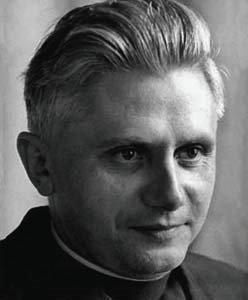
VATICAN CITY (Zenit.org) - Referring to his own experience as a young man, Benedict XVI is encouraging youth to foster their desires for “something beyond everyday life,” since that longing is a sign of God’s “imprint.”
The Pope made this 6 August exhortation in his message for next August’s World Youth Day in Spain.
The Holy Father’s message makes several references to his own youthfulness.
“When I think back on that time, I remember above all that we were not willing to settle for a conventional, middle-class life,” he recounted.
“We wanted something great, something new. We wanted to discover life itself, in all its grandeur and beauty.
“Naturally, part of that was due to the times we lived in. During the Nazi dictatorship and the war, we were, so to speak, ‘hemmed in’ by the dominant power structure. So we wanted to break out into the open, to experience the whole range of human possibilities.”
The Pontiff reflected that “to some extent, this urge to break out of the ordinary is present in every generation.”
“Part of being young is desiring something beyond everyday life and a secure job, a yearning for something really truly greater,” he said. “Is this simply an empty dream that fades away as we become older? No! Men and women were created for something great, for infinity. Nothing else will ever be enough.”
Benedict XVI said this desire for “a more meaningful life” is actually a sign that God created us, “and that we bear his ‘imprint.’”
“God is life, and that is why every creature reaches out towards life,” he affirmed.
“Because human beings are made in the image of God, we do this in a unique and special way. We reach out for love, joy and peace. So we can see how absurd it is to think that we can truly live by removing God from the picture!”
The Bishop of Rome told the young people that it is “vital to have roots” and a solid foundation.
“This is particularly true today,” he said, when many people lack “stable points of reference on which to build their lives, and so they end up deeply insecure.”
The Pope pointed to the “growing mentality of relativism, which holds that everything is equally valid, that truth and absolute points of reference do not exist.” He cautioned that this way of thinking “does not lead to true freedom, but rather to instability, confusion and blind conformity to the fads of the moment.”
“As young people,” he said, “you are entitled to receive from previous generations solid points of reference to help you to make choices and on which to build your lives: like a young plant which needs solid support until it can sink deep roots and become a sturdy tree capable of bearing fruit.”
The Holy Father goes on to reflect on the theme of World Youth Day, taken from St Paul’s Letter to the Colossians: “Planted and built up in Jesus Christ, firm in the faith.”
And he concludes his message by reiterating the invitation to Spain next August.
“I await each of you with great joy,” he affirmed. “Jesus Christ wishes to make you firm in faith through the Church.”
Acknowledging that following Christ is not easy, the Holy Father told the youth: “Do not be discouraged. Rather, look for the support of the Christian community, the support of the Church.”
-
When attending Mass and receiving the Eucharist, Catholics must be filled with gratitude for God’s great gifts, Pope Benedict XVI told a group of his former students.
“Despite the fact that we have nothing to give in return and we are full of faults,” the Pope said, Jesus “invites us to His table and wants to be with us.”
The Pope presided at a 29 August Mass in Castel Gandolfo during his annual meeting with students who did their doctorates with him when he was a professor in Germany.
Austrian Cardinal Christoph Schonborn of Vienna, a regular participant in the Ratzinger Schülerkreis (Ratzinger student circle), gave the homily at the Mass, but the Pope made remarks at the beginning of the liturgy.
Introducing the penitential rite, Pope Benedict said: “In today’s Gospel the Lord makes us see how, in reality, we continue to live like the pagans do. We extend invitations only to those who can invite us. We give only to those who can give back.”
In the day’s Gospel passage from Luke, Jesus tells His disciples not to invite the rich to dinner “in case they may invite you back and you have repayment. Rather, when you hold a banquet, invite the poor, the crippled, the lame, the blind; blessed indeed will you be because of their inability to repay you. For you will be repaid at the resurrection of the righteous.”
The Pope told his former students that “God’s style” of inviting people is clear in the gift of the Eucharist.
“Before Him we are crippled, blind and deaf; He invites us even though we have nothing to give Him,” the Pope said.
Pope Benedict said Catholics must experience gratitude before such a generous God.
But in addition, he said, we must “feel guilt for detaching ourselves so slightly from the pagan style, for living so slightly in the new way, God’s way.”
Pope Benedict chose Archbishop Kurt Koch, the former Bishop of Basel, Switzerland, to lead the formal discussions of the Schülerkreis this year. Archbishop Koch is the new president of the Pontifical Council for Promoting
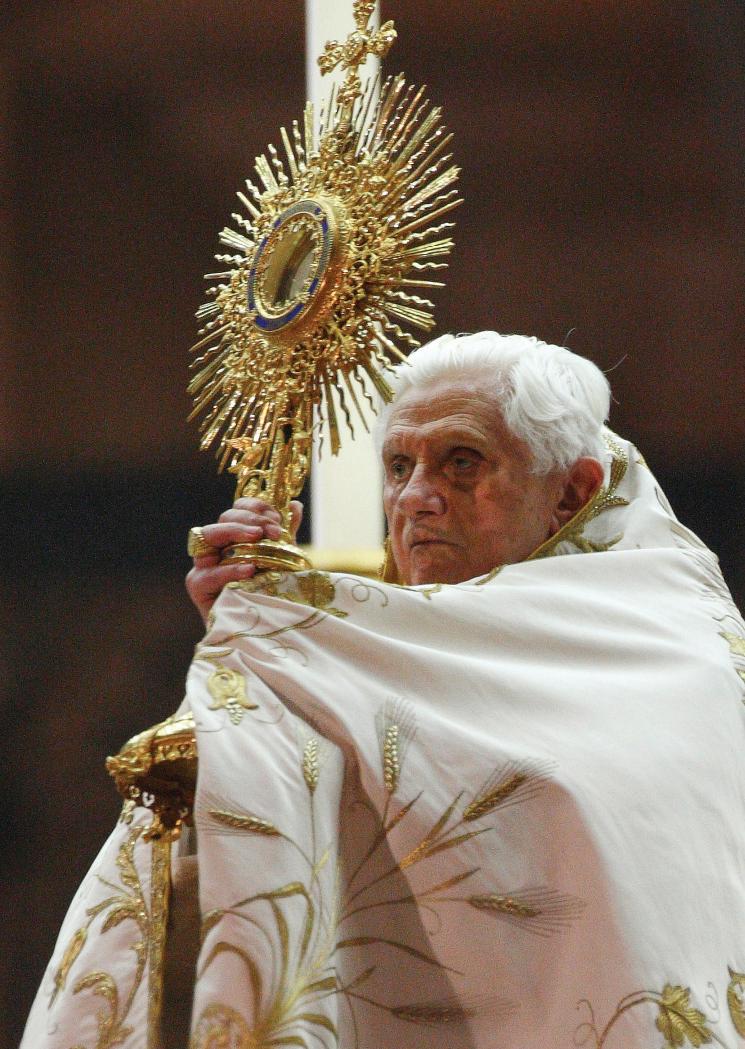
Christian Unity. The discussions, held behind closed doors, focused on understanding the teaching of the Second Vatican Council and the balance it tried to strike between reforming the Church and maintaining tradition, reported L’Osservatore Romano, the Vatican newspaper.
Archbishop Koch gave two lectures: The Second Vatican Council: Between Tradition and Innovation, and another on the council’s document on the liturgy and on the liturgical reforms it launched.
Summarising the discussion for L’Osservatore Romano on 31 August, Archbishop Koch said, “Faithfulness to tradition, openness to the future: That is the most correct interpretation of the Second Vatican Council, which remains the Magna Carta of the church, including in the third millennium.”
The Archbishop said the discussions of his two lectures lasted more than an hour each and were
“concrete, lively and positive.” He said he told the meeting participants that the council’s documents must be read through the lens of “reform with a fundamental continuity,” but always giving priority to the spiritual dimension of Christian life.
The basic approach to the council as a whole will be reflected in the approach to the liturgical reforms called for by the council, he said.
Archbishop Koch said his second talk focused on “the principle of the active participation of all the faithful in the liturgy and the principle of making the rites easier to understand and simpler,” but also about the need for a “reform of the reform,” which would emphasise Christ as the centre of the liturgy.
The Archbishop had a private audience with the Pope on 30 August, which, he said, was more focused on his new position as the Vatican’s chief ecumenist than on his presentations.
SEOUL, South Korea (CNS) - A whistle-stop visit by North Korean leader Kim Jong Il to a church in China is not a sign that the secretive Communist regime’s stance toward religion is softening, South Korean Catholics say. Kim visited a Catholic church in Jilin, in northeastern China, during his 26-30 August trip to the country. The church visit immediately sparked speculation that North Korea might relax its rigid stance toward Catholicism and other religions. “It could be some kind of message related toward religion, including Catholicism,” the Korean Hankyoreh daily quoted an anony-
mous government official saying. But Catholics in South Korea were quick to dismiss such speculation, reported the Asian Church news agency UCA News.
It goes too far to say his visit has a hidden message, Fr Baptist John Kim Hun-il, who works at the Korean Bishops’ conference, told UCA News. “It seems the visit was just part of his trip. North Korea has not given any sign of improving its relationship not only with the Catholic Church but with other religions in South Korea,” he said.
Peter Park Chang-ho, secretary of Seoul Archdiocese’s Korea Reconciliation Committee, said: “It’s all guess work. His church
visit was a part of a personal ‘pilgrimage,’” he said. During this trip, Kim visited several places where his father and predecessor, Kim Il Sung, had stayed. Church sources in Jilin told UCA News that Father Nicholas Liu Wenhui, the parish priest, escorted Kim around the Sacred Heart of Jesus Church on 26 August. Kim spent only five minutes in the church but told the priest that his father once stayed there during the 1937-45 Second Sino-Japanese War, the sources said. Built in 1926, the Gothic church was a former Jilin diocesan Cathedral. It was declared a historical monument by the Jilin provincial government in 1999.
Family issues expert draws on the dignity given to mankind by the document many Catholics struggle to adhere to
BY K ARNA SWANSON Zenit.orgOMAHA, Nebraska - The 1968 encyclical Humanae Vitae is about much more than a prohibition of artificial contraception, says a Polish priest and expert on family issues who addressed a conference in Omaha. Rather, it is a document about the dignity of human life and marriage.
Fr Jaroslaw Szymczak, of the faculty for Studies on the Family at the Cardinal Stefan Wyszynski University, affirmed this at an international conference on the pastoral directives of Humanae Vitae
The conference kicks off the four-day Celebration of Love and Life seminar organised by the Pope Paul VI Institute to celebrate its 25th anniversary.
The Paul VI Institute, founded by Dr Thomas Hilgers, is aiming to build a culture of life in women’s health care. Among other accomplishments, it has developed a method of natural family planning called the Creighton Model FertilityCare System and NaProTechnology.
In his address, Fr Szymczak gave an overview of the encyclical written by Paul VI, which he said is about much more than just contraception, but rather about “human dignity, especially the dignity of woman, and the beauty of marital love.”
“Love is more than a feeling, but a programme for the fullness of
one’s life, and certain conditions must be met for it to be possible,” the Polish priest affirmed.
Noting that the essence of marriage is “a gift of self,” Fr Szymczak reflected on a passage of the 1965 pastoral constitution on the Second Vatican Council Document on the Church in the Modern World, Gaudium et Spes, which states that “man ... cannot fully find himself except through a sincere gift of himself.”
“Gaudium et Spes reminds us that our love, which is eros, human affection, is healed, perfected, and raised up, elevated, by God, through his love, caritas,” the priest said.
“Love, elevated by God (through fidelity to Humanae Vitae) is essential to realise ourselves as persons”
- Fr Szymczak
Not only is this possible, he added, but “it is fully necessary if we are to realise ourselves as persons.”
Only through this gift of self does a man develop as a man, and a woman develop as a woman, the priest continued. When a person becomes a gift of self, he or she enriches himself or herself. Additionally, “the one who gives himself as a gift to another, matures.”
Fr Szymczak then delineated the conditions for the gift of self. The first is objectivity: “A gift requires a free and conscious act of giving, not just a sense of devotedness.”
Other conditions include that the gift must be total, exclusive, lifelong, and unconditional.
One must say, the Polish priest explained, “I give myself, and that’s it.” One can’t say, “I give myself on the condition that ... and if you fail to meet this condition, I’m sorry, I’m going.”
The last condition, he continued, is that the gift must be mutual: “Whenever there is this gift of one person to another, there is also receptivity to the gift of the other.”
Fr Szymczak also pointed to the importance of self-control in the gift of self.
“One important element of giving oneself is that we can only give that which we both possess and control,” he explained. “Hence, if one gives oneself, it is [necessary] that one possesses oneself, and one is in control of oneself.”
He said one is in possession of oneself when “feelings and sensuality are subdued to the intellect and will, which in turn need to be trained.” The absence of this “and the weakness of will are the result of original sin. Ever since original sin, concupiscence drives us to turn natural emotion and sensual yearning into the use of the other,” he observed.
Fr Szymczak went on to explain that the virtue of chastity “allows us to see the whole truth about the person.”
He said that in modern society, it seems that people are looked at in terms of usefulness, rather than in terms of “their value as a person.”
Chastity also allows us to integrate “the values which are in a person with her or his value as a person,” he said. “Chastity allows us to look at others with purity, clarity, transparency, especially those of the opposite sex.”
Chastity alone, he continued, “is the foundation for a gift that must be at once objective, total, mutual, exclusive, lifelong and unconditional.”
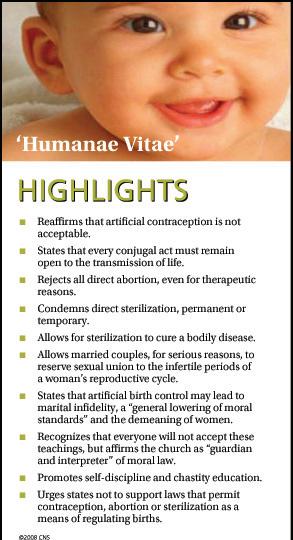
OMAHA, Nebraska (Zenit. org)- It’s not easy for couples to live out the demands of the Gospel in a society that pressures them to take the easy road, but God is generous with those who continually strive to answer His call, the president of the Pontifical Council for Health Care Ministry said.
Archbishop Zygmunt
Zimowski said this on 5 September in his homily at the closing Mass for the four-day Celebration of Love and Life seminar that marked the 25th anniversary of the Pope Paul VI Institute, which was held in Omaha.
Dr Thomas Hilgers and his wife, Sue, founded the institute in response to Paul VI’s appeal to men of science in the encyclical Humanae Vitae to develop methods of natural family planning that were consistent with Catholic teaching.
The institute has since developed the Creighton Model FertilityCare System and Natural Procreative Technology (NaProTechnology), which can help women to both avoid and achieve pregnancies without using contraception or artificial reproduction technologies such as in vitro fertilisation.
Australia’s answer to this, the organisation called FertilityCare, was started in Perth by Dr Amanda Lamont.
In his homily, Archbishop

edges that ‘amid the joys and struggles of their life, God has preserved the union between them.’ The trials or tribulations we face are rich grounds upon which the seeds of discipleship can take root.”
The president of the health council noted that the Paul VI Institute has worked to help couples struggling with fertility problems, as well as couples looking for a natural family planning method, to choose methods that are consistent with Church teaching. But he added that it is ultimately up to “the faith, the commitment, the conviction and collaboration of a couple to make the programme work.”
“We know that obedience to the Gospel is not easy,” Archbishop Zimowski affirmed. “Following the Lord is not easy when there are pressures from within and from without that say ‘go the other way,’ or ‘don’t be bothered, no one else is.’”
hope to Christians who fail. Repentance and a second chance are always possible. Jesus is generous with His grace to those who strive to answer His call.”
At the end of the Mass, Archbishop Zimowski bestowed on Sue and Thomas Hilgers the Good Samaritan Medal of the Pontifical Council for Health Care Ministry. The Archbishop noted the institute’s work in “building a culture of life in women’s health care,” and that at times it “stood alone.”
“But with God’s grace and the commitment of the management, staff and supporters, the institute has educated practitioners, instructors, supervisors, educators, nurses, medical consultants, clergy and Religious and, of course, touched the lives of many mothers and families,” the Archbishop said.
Zimowski offered a reflection on marriage, which he called “one of the best forms of discipleship today,” as well as the “best reflection of the union between Christ and the Church.”
“We live in an era which tries to promote intimacy without complications,” he lamented.
“The reality is that there are no perfect couples, just like there are no perfect disciples. There are a lot of struggling couples. It is in the struggles that discipleship is lived out and perfected.
“In fact, the prayer of blessing over couples celebrating their marriage anniversary acknowl-
The Archbishop encouraged couples to look to Christ’s apostles for encouragement: “The Gospels show that they struggled at every point to follow Jesus. Yet He did not write them off. And it is clear that they learned from their failures.
“It was only after His death and resurrection that they became His true followers. By looking at them, we discover our own inadequacies. The Gospel offers
The Archbishop also bestowed the Good Samaritan Medal on Pat and Timothy Von Dohlen, who are both members of the John Paul II Life Centre in Austin, Texas, which is modelled after the Paul VI Institute.
Timothy Von Dohlen spoke at the conference on the pastoral directives of Humanae Vitae, in which he reflected on the appeal to public authorities. Von Dohlen asserted that “life is the greatest social justice issue,” and that Catholics must stand strong in defence of life at all stages.
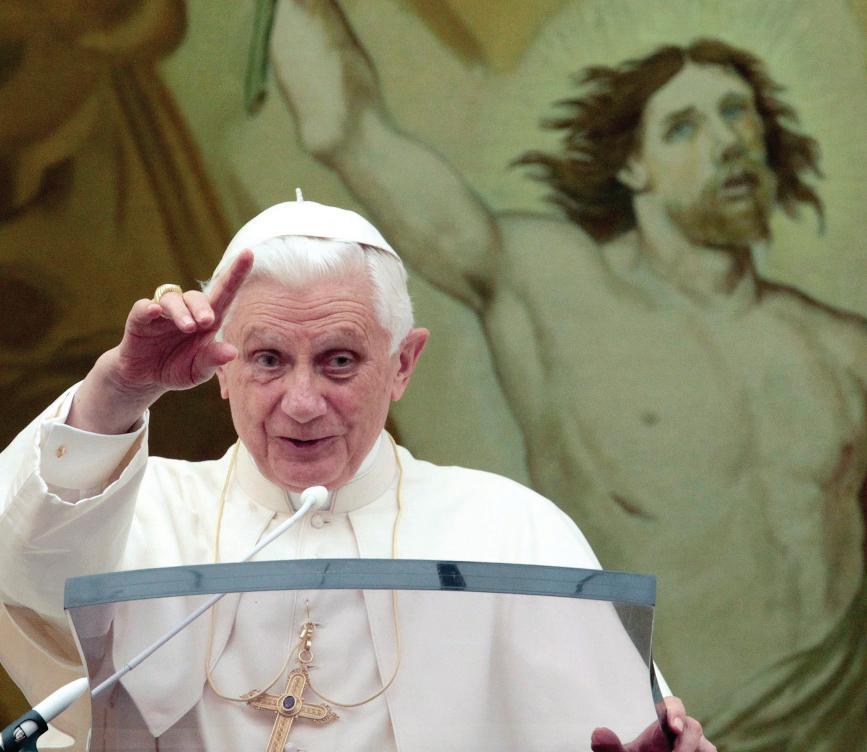
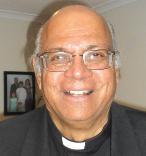 Fr James Valladares
Fr James Valladares
Fr James Valladares, resident priest at Adelaide’s St Francis Xavier Cathedral, writes exclusively for The Record on the radical call of the priesthood
As an alter Christus (another Christ), the sacrifice that the priest celebrates and the absolution he gives are grounded on this Otherness that passes through him, by means of the sacrament, and makes him “a humble instrument pointing to Christ, who offers Himself in sacrifice for the salvation of the world.”
This is how the saintly Curé d’Ars, St John Vianney, wisely described how immense a gift a priest is to his people: “A good shepherd, a pastor after God’s heart, is the greatest treasure which the good Lord can grant to a parish, and one of the most precious gifts of divine mercy. Without the priest, the passion and death of our Lord would be of no avail. It is the priest who continues the work of redemption on earth.”
If I may be permitted to be personal, I was once visiting my sister in Virginia Beach, Virginia, while on my annual holiday. While there, I would assist the Parish Priest as and when it was necessary.
One day I got a call from the lay Chaplain of the local general hospital.
He explained that a lady wished to see a Catholic priest urgently, as she was not expected to survive the night. He further explained that the parish priest was away and not due to return until the next day.
He also explained that the parish priest of the neighbouring parish was away for a few days. He turned to me because I was the only priest available in the area. Of course, he was apologetic for turning to me
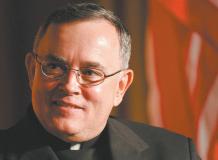
even though he knew I was on my annual holiday. Without hesitation, I assured him that I would be willing to respond if only he would be good enough to come and fetch me as I had no transport.
Minutes later he was at my door, and a few minutes later I was at the bedside of the patient.
Her joy truly knew no bounds. Very candidly, she confessed that she had strayed from the Catholic faith and the Catholic Church years ago in a moment of youthful recklessness and juvenile rebellion. That was some 40 years ago.
However, in that crisis, it was her earnest desire to make her peace with God even as she prepared for the final encounter. And for that she needed the priestly ministry of God’s visible representative, and so she asked to see a priest.
In God’s Divine Providence, the only priest available was one from another continent thousands of miles away, another distant city and another nationality and culture.
None of that mattered to the patient. For her, a priest, any priest regardless of nationality, culture or language, is indeed the love of the heart of Jesus.
He is God’s representative, an extension of Christ Jesus and a channel of the Holy Spirit’s lifegiving power and love.
With great fervour and heart-warming sincerity, that good lady did make her peace with God in and through the Sacrament of Reconciliation, reverently received the Sacrament of the Sick, and joyfully received the Holy Eucharist.
The manifest peace and inexpressible joy that descended upon her literally defy expression. The prodigal had returned home into the welcoming arms of a very merciful and forgiving Father and the heavenly banquet had already been organised. “My daughter, whom I thought lost, has been found; and she whom all thought dead has come back to life.” And that is exactly is what did happen within the next few hours.
Said Jesus, “I tell you there is more joy in heaven over one repentant sinner than over ninety-nine other virtuous people that have no need of repentance.” And God rendered that possible in and through the sacramental ministry of a priest. Indeed, a priest is the love of the heart of Jesus.
Charles Chaput, Catholic Archbishop of Denver, addressed the first session of the 15th symposium for the Canon Law Association of Slovakia on 14 August, calling on Catholics in the West to resist the world’s intolerance of Christianity. The Record presents Part 1 of his crucial speech.
Tertullian once famously said that the blood of martyrs is the seed of the Church. History has proven that to be true. And Slovakia is the perfect place for us to revisit his words today.
Here, and throughout central and eastern Europe, Catholics suffered through 50 years of Nazi and Soviet murder regimes.
So they know the real cost of Christian witness from bitter experience - and also, unfortunately, the cost of cowardice, collaboration and self-delusion in the face of evil.
I want to begin by suggesting that many Catholics in the United States and Western Europe today simply don’t understand those costs.
Nor do they seem to care. As a result, many are indifferent to the process in our countries that social scientists like to call “secularisation” – but which, in practice, involves repudiating the Christian roots and soul of our civilisation.
American Catholics have no experience of the systematic repression so familiar to your Churches. It’s true that anti-Catholic prejudice has always played a role in American life.
This bigotry came first from my country’s dominant Protestant culture, and now from its “postChristian” leadership classes. But this is quite different from deliberate persecution.
In general, Catholics have thrived in the United States.
The reason is simple.
America has always had a broadly Christian and religion-friendly moral foundation, and our public institutions were established as non-sectarian, not anti-religious.
At the heart of the American experience is an instinctive “biblical realism.”
From our Protestant inheritance we have always – at least until now - understood that sin is real, and men and women can be corrupted by power and prosperity.
Americans have often been tempted to see our nation as uniquely destined, or specially anointed by God.
But in the habits of daily life, we have always known that the “city of God” is something very distinct from the “city of man.” And we are wary of confusing the two.
Alexis de Tocqueville, in his Democracy in America, wrote: “Despotism can do without faith, but liberty cannot ...”
Therefore, “What is to be done
with a people that is its own master, if it is not obedient to God?”
America’s founders were a diverse group of practising Christians and Enlightenment deists. But nearly all were friendly to religious faith.
They believed a free people cannot remain free without religious faith and the virtues that it fosters.
They sought to keep Church and State separate and autonomous.
But their motives were very different from the revolutionary agenda in Europe.
The American founders did not confuse the State with civil society. They had no desire for a radically secularised public life.
They had no intent to lock religion away from public affairs.
On the contrary, they wanted to guarantee citizens the freedom to live their faith publicly and vigorously, and to bring their religious convictions to bear on the building of a just society.
Obviously, we need to remember that other big differences do exist between the American and European experiences. Europe has suffered some of the worst wars and violent regimes in human history.
The United States has not seen a war on its soil in 150 years.
Americans have no experience of bombed-out cities or social collapse, and little experience of poverty, ideological politics or hunger.
As a result, the past has left many Europeans with a worldliness and a pessimism that seem very different from the optimism that marks American society.
But these and other differences don’t change the fact that our paths into the future are now converging.
Today, in an era of global interconnection, the challenges that confront Catholics in America are much the same as in Europe (and Australia - ed).
We face an aggressively secular political vision and a consumerist
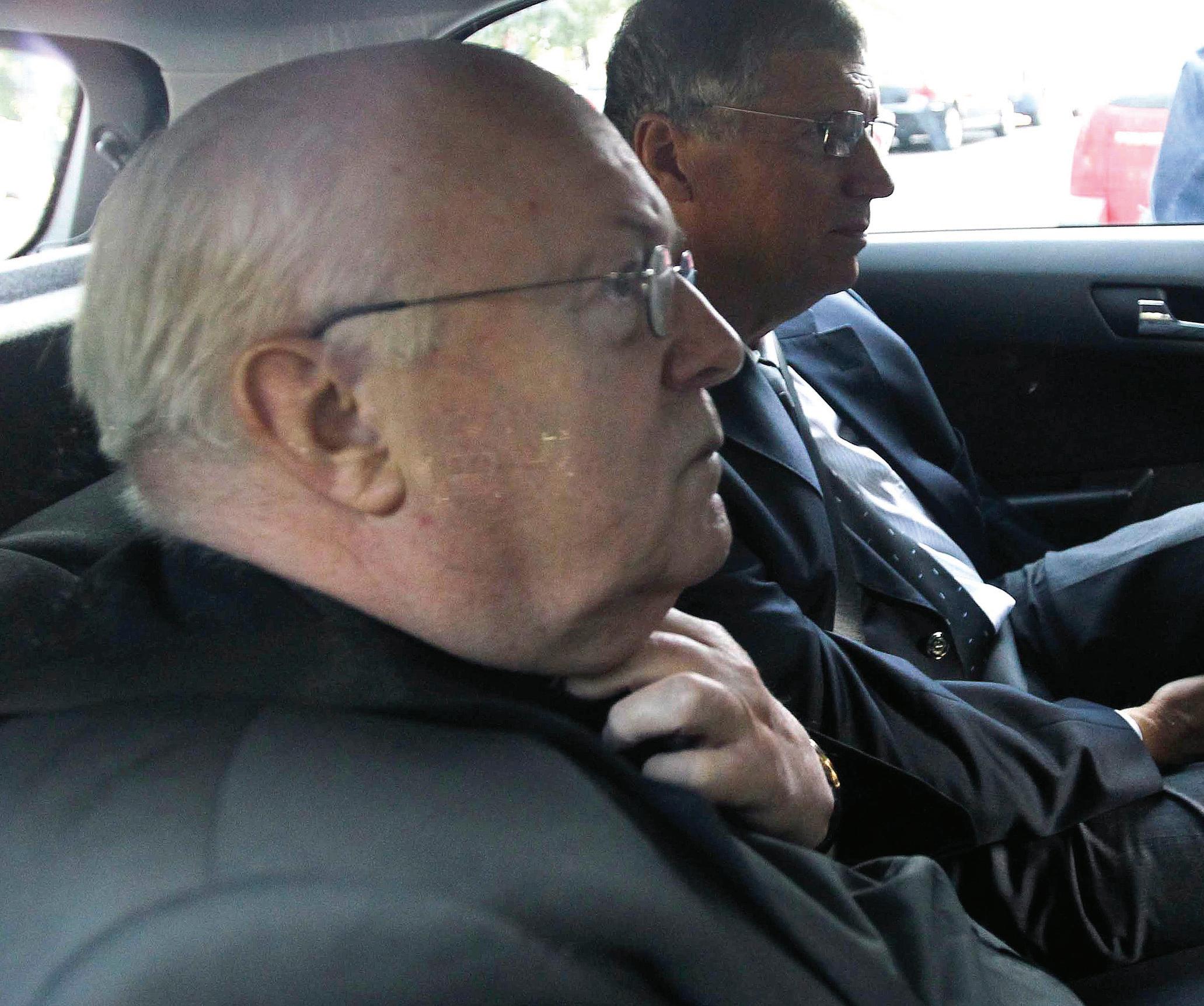
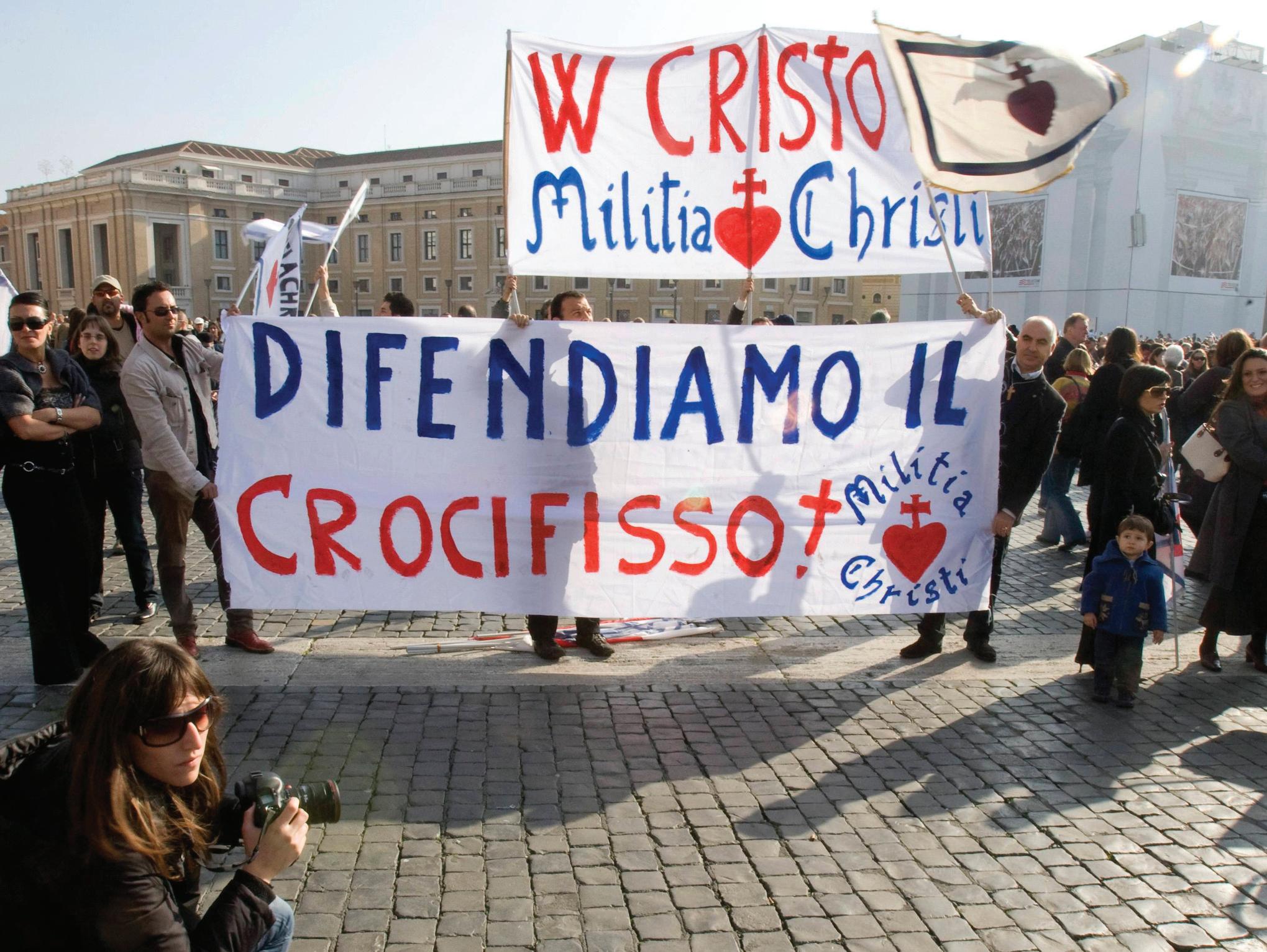
economic model that result - in practice, if not in explicit intentin a new kind of state-encouraged atheism.
To put it another way: The Enlightenment-derived world view that gave rise to the great murder ideologies of the last century remains very much alive.
“Secularisers have learned from the past - more adroit in their bigotry; more elegant in their PR; more intelligent in their work to exclude the Church and individual believers from influencing the moral life of society.”
- Archbishop Chaput
Its language is softer, its intentions seem kinder, and its face is friendlier.
But its underlying impulse hasn’t changed - ie, the dream of building a society apart from God; a world where men and women might live wholly sufficient unto themselves, satisfying their needs and desires through their own ingenuity.
This vision presumes a frankly “post-Christian” world ruled by rationality, technology and good social engineering.
Religion has a place in this world view, but only as an individual lifestyle accessory.
People are free to worship and believe whatever they want, so long as they keep their beliefs to themselves and do not presume to intrude their religious idiosyn-
crasies on the workings of government, the economy, or culture.
Now, at first hearing, this might sound like a reasonable way to organise a modern society that includes a wide range of ethnic, religious and cultural traditions, different philosophies of life and approaches to living.
But we’re immediately struck by two unpleasant details.
First, “freedom of worship” is not at all the same thing as “freedom of religion.”
Religious freedom includes the right to preach, teach, assemble, organise, and to engage society and its issues publicly, both as individuals and joined together as communities of faith.
This is the classic understanding of a citizen’s right to the “free exercise” of his or her religion in the First Amendment to the US Constitution. It’s also clearly implied in Article 18 of the Universal Declaration of Human Rights.
In contrast, freedom of worship is a much smaller and more restrictive idea.
Second, how does the rhetoric of enlightened, secular tolerance square with the actual experience of faithful Catholics in Europe and North America in recent years?
In the United States, a nation that is still 80 per cent Christian with a high degree of religious practice, government agencies now increasingly seek to dictate how Church ministries should operate, and to force them into practices that would destroy their Catholic identity.
Efforts have been made to discourage or criminalise the expression of certain Catholic beliefs as “hate speech.”
Our courts and legislatures now routinely take actions that undermine marriage and family life, and seek to scrub our public life of Christian symbolism and signs of influence.
In Europe, we see similar trends, although marked by a more open contempt for Christianity. Church leaders have been reviled in the media and even in the courts for simply expressing Catholic teach-
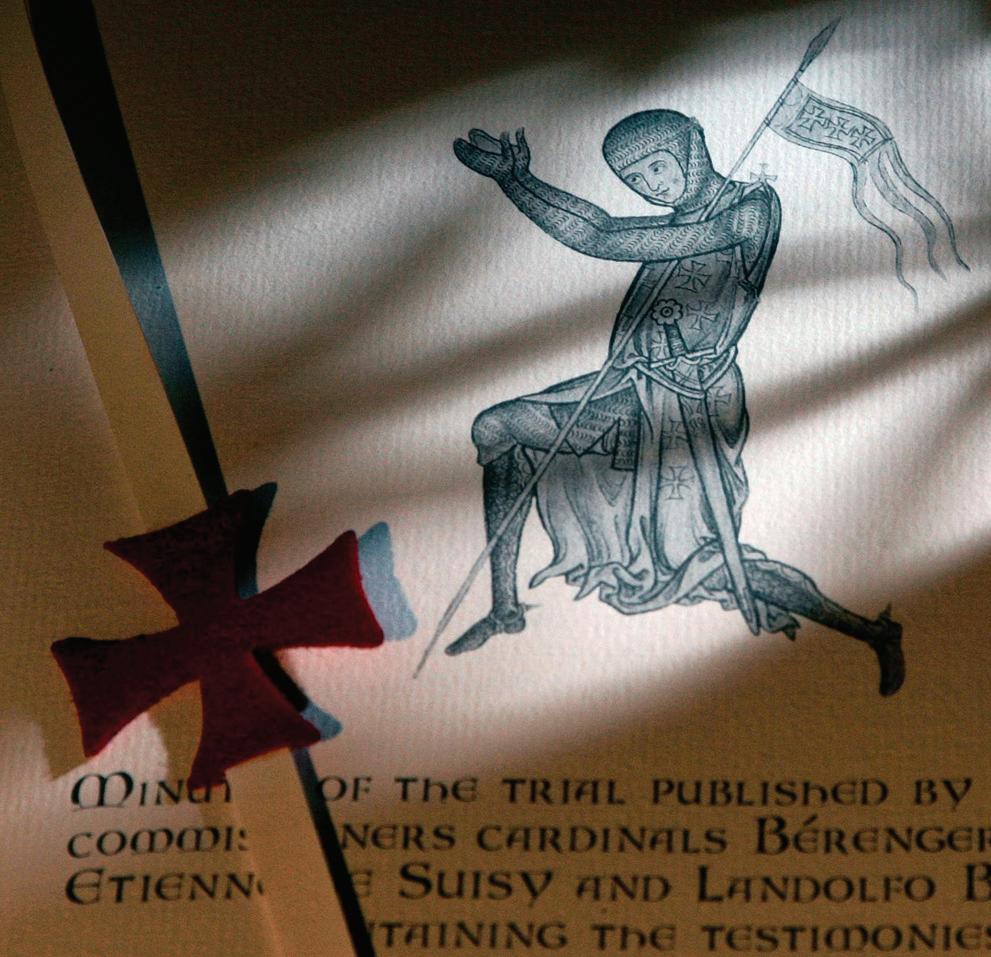
ing. Some years ago, as many of you may recall, one of the leading Catholic politicians of our generation, Rocco Buttiglione, was denied a leadership post in the European Union because of his Catholic beliefs.
Earlier this summer we witnessed the kind of vindictive thuggery not seen on this continent since the days of Nazi and Soviet police methods: the Archbishop’s palace in Brussels raided by agents; Bishops detained and interrogated for nine hours without due process; their private computers, cell phones, and files seized.
Even the graves of the Church’s dead were violated in the raid. For most Americans, this sort of calculated, public humiliation of religious leaders would be an outrage and an abuse of State power. And this is not because of the virtues or the sins of any specific religious leaders involved, since we all have a duty to obey just laws.
Rather, it’s an outrage because the civil authority, by its harshness, shows contempt for the beliefs and the believers whom the leaders represent.
My point is this: These are not the actions of governments that see the Catholic Church as a valued partner in their plans for the 21st century.
Quite the opposite. These events suggest an emerging, systematic discrimination against the Church that now seems inevitable.
Today’s secularisers have learned from the past.
They are more adroit in their bigotry; more elegant in their public relations; more intelligent in their work to exclude the Church and individual believers from influencing the moral life of society.
Over the next several decades, Christianity will become a faith that can speak in the public square less and less freely.
A society where faith is prevented from vigorous public expression is a society that has fashioned the state into an idol. And when the state becomes an idol, men and women become the sacrificial offering.
- To be continued in next week’s The Record
Dissecting the issue which has brought the Church to its knees
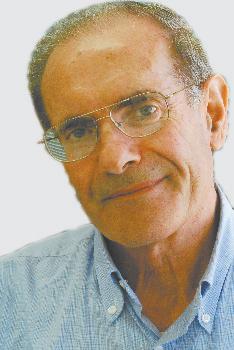 By Anthony Paganoni CS
By Anthony Paganoni CS
It is with a sense of deep inner satisfaction that I have revisited several Church History volumes written by the very well-known French historian, H Daniel-Rops. As students in the mid-1960s, we had to leaf through the pages of several of his volumes with a high level of concentration, as the eminent historian would deal with extremely controversial issues and events that had marked the “soul” of the Church.
Daniel-Rops had the uncanny quality of making you feel that, notwithstanding the many setbacks and achievements experienced in nearly 20 centuries of its history, the Church’s life and identity could not be questioned; that, somehow, successive meltdowns had not only brought to the surface its impregnable quality, but had, in the course of many centuries, added maturity to its resilience.
In Cathedral and Crusade. Studies of the Medieval Church, 1050-1350, he notes (p 599) that the Church has always been realistic, taking the world as she found it, notwithstanding her ambition to make it a better place.
Between 1050 and 1350 she had realised those great syntheses of which Christian intellectuals had dreamed since the patristic age.
Now she could offer a philosophical system, a conception of the world, as rich and as valuable as those which she had inherited, a system which included all that was best in ancient thought.
During that period, also, Christian art attained its zenith
... it was an epoch of great creative audacity, during which Christianity expressed itself with much originality, with a power of invention and synthesis the like of which has never since been seen. The Cathedral, with its vertical lines suggestive of a soul at prayer, with its precise mathematics and regular design, with its innumerable forms directed to a single entity and at once human and divine, was concrete evidence of the Church’s greatness, to which it still bears witness.
Notwithstanding his rigorous and detailed presentation and explanation of facts and events as they have occurred over 20 centuries of struggles and achievements, Daniel-Rops keeps mentioning the word “soul”, the soul of the Church. This soul lies in the continuity of adoration, prayer and love. In his Bernard of Clairvaux, he explains the justification of the presence of a monastery in Citaux:
In this age of the “death of God”, predicted by Nietzsche, those who wish to be faithful in spite of all, are fighting for their lives. That in this combat, the effort made by Christians to carry their faith to all parts of the globe, and to make it everywhere efficient is indispensable and admirable and is, of course, true: but it is inseparable from the effort those men and women, who sacrifice all to solitary prayer, accomplished in the silence of their cloisters.
There are few words more profound than those of the young Cistercian Abbot Roger Durey, who died in 1917 at La Trappe de Saint-Marie-duDesert: “I came here because I loved the apostolate” (p 222223).
There has been a flurry of proposals put forward for round table discussions involving the Roman Curia and Bishops by countless individual theologians, priests and Bishops within the Church.
They all call for a radical review of the Church’s government and policies.They all echo the dictum: Ecclesia sempre reformanda. That is, the Church is always on the path of reform and it needs to be reformed. But where is the most urgent surgery to be applied?

economic model that result - in practice, if not in explicit intentin a new kind of state-encouraged atheism.
To put it another way: The Enlightenment-derived world view that gave rise to the great murder ideologies of the last century remains very much alive.
“Secularisers have learned from the past - more adroit in their bigotry; more elegant in their PR; more intelligent in their work to exclude the Church and individual believers from influencing the moral life of society.”
- Archbishop Chaput
Its language is softer, its intentions seem kinder, and its face is friendlier.
But its underlying impulse hasn’t changed - ie, the dream of building a society apart from God; a world where men and women might live wholly sufficient unto themselves, satisfying their needs and desires through their own ingenuity.
This vision presumes a frankly “post-Christian” world ruled by rationality, technology and good social engineering.
Religion has a place in this world view, but only as an individual lifestyle accessory.
People are free to worship and believe whatever they want, so long as they keep their beliefs to themselves and do not presume to intrude their religious idiosyn-
crasies on the workings of government, the economy, or culture.
Now, at first hearing, this might sound like a reasonable way to organise a modern society that includes a wide range of ethnic, religious and cultural traditions, different philosophies of life and approaches to living.
But we’re immediately struck by two unpleasant details.
First, “freedom of worship” is not at all the same thing as “freedom of religion.”
Religious freedom includes the right to preach, teach, assemble, organise, and to engage society and its issues publicly, both as individuals and joined together as communities of faith.
This is the classic understanding of a citizen’s right to the “free exercise” of his or her religion in the First Amendment to the US Constitution. It’s also clearly implied in Article 18 of the Universal Declaration of Human Rights.
In contrast, freedom of worship is a much smaller and more restrictive idea.
Second, how does the rhetoric of enlightened, secular tolerance square with the actual experience of faithful Catholics in Europe and North America in recent years?
In the United States, a nation that is still 80 per cent Christian with a high degree of religious practice, government agencies now increasingly seek to dictate how Church ministries should operate, and to force them into practices that would destroy their Catholic identity.
Efforts have been made to discourage or criminalise the expression of certain Catholic beliefs as “hate speech.”
Our courts and legislatures now routinely take actions that undermine marriage and family life, and seek to scrub our public life of Christian symbolism and signs of influence.
In Europe, we see similar trends, although marked by a more open contempt for Christianity. Church leaders have been reviled in the media and even in the courts for simply expressing Catholic teach-

ing. Some years ago, as many of you may recall, one of the leading Catholic politicians of our generation, Rocco Buttiglione, was denied a leadership post in the European Union because of his Catholic beliefs.
Earlier this summer we witnessed the kind of vindictive thuggery not seen on this continent since the days of Nazi and Soviet police methods: the Archbishop’s palace in Brussels raided by agents; Bishops detained and interrogated for nine hours without due process; their private computers, cell phones, and files seized.
Even the graves of the Church’s dead were violated in the raid. For most Americans, this sort of calculated, public humiliation of religious leaders would be an outrage and an abuse of State power. And this is not because of the virtues or the sins of any specific religious leaders involved, since we all have a duty to obey just laws.
Rather, it’s an outrage because the civil authority, by its harshness, shows contempt for the beliefs and the believers whom the leaders represent.
My point is this: These are not the actions of governments that see the Catholic Church as a valued partner in their plans for the 21st century.
Quite the opposite. These events suggest an emerging, systematic discrimination against the Church that now seems inevitable.
Today’s secularisers have learned from the past.
They are more adroit in their bigotry; more elegant in their public relations; more intelligent in their work to exclude the Church and individual believers from influencing the moral life of society.
Over the next several decades, Christianity will become a faith that can speak in the public square less and less freely.
A society where faith is prevented from vigorous public expression is a society that has fashioned the state into an idol. And when the state becomes an idol, men and women become the sacrificial offering.
- To be continued in next week’s The Record
Dissecting the issue which has brought the Church to its knees
 By Anthony Paganoni CS
By Anthony Paganoni CS
It is with a sense of deep inner satisfaction that I have revisited several Church History volumes written by the very well-known French historian, H Daniel-Rops. As students in the mid-1960s, we had to leaf through the pages of several of his volumes with a high level of concentration, as the eminent historian would deal with extremely controversial issues and events that had marked the “soul” of the Church.
Daniel-Rops had the uncanny quality of making you feel that, notwithstanding the many setbacks and achievements experienced in nearly 20 centuries of its history, the Church’s life and identity could not be questioned; that, somehow, successive meltdowns had not only brought to the surface its impregnable quality, but had, in the course of many centuries, added maturity to its resilience.
In Cathedral and Crusade. Studies of the Medieval Church, 1050-1350, he notes (p 599) that the Church has always been realistic, taking the world as she found it, notwithstanding her ambition to make it a better place.
Between 1050 and 1350 she had realised those great syntheses of which Christian intellectuals had dreamed since the patristic age.
Now she could offer a philosophical system, a conception of the world, as rich and as valuable as those which she had inherited, a system which included all that was best in ancient thought.
During that period, also, Christian art attained its zenith
... it was an epoch of great creative audacity, during which Christianity expressed itself with much originality, with a power of invention and synthesis the like of which has never since been seen. The Cathedral, with its vertical lines suggestive of a soul at prayer, with its precise mathematics and regular design, with its innumerable forms directed to a single entity and at once human and divine, was concrete evidence of the Church’s greatness, to which it still bears witness.
Notwithstanding his rigorous and detailed presentation and explanation of facts and events as they have occurred over 20 centuries of struggles and achievements, Daniel-Rops keeps mentioning the word “soul”, the soul of the Church. This soul lies in the continuity of adoration, prayer and love. In his Bernard of Clairvaux, he explains the justification of the presence of a monastery in Citaux:
In this age of the “death of God”, predicted by Nietzsche, those who wish to be faithful in spite of all, are fighting for their lives. That in this combat, the effort made by Christians to carry their faith to all parts of the globe, and to make it everywhere efficient is indispensable and admirable and is, of course, true: but it is inseparable from the effort those men and women, who sacrifice all to solitary prayer, accomplished in the silence of their cloisters.
There are few words more profound than those of the young Cistercian Abbot Roger Durey, who died in 1917 at La Trappe de Saint-Marie-duDesert: “I came here because I loved the apostolate” (p 222223).
There has been a flurry of proposals put forward for round table discussions involving the Roman Curia and Bishops by countless individual theologians, priests and Bishops within the Church.
They all call for a radical review of the Church’s government and policies.They all echo the dictum: Ecclesia sempre reformanda. That is, the Church is always on the path of reform and it needs to be reformed. But where is the most urgent surgery to be applied?
Contributions may be emailed to office@therecord.com.au, faxed to 9325 4580, or mailed to PO Box 3075, Adelaide Terrace, Perth WA 6832.
SUNDAY, 12 SEPTEMBER
The World Apostolate of Fatima – Eucharistic Hour 3pm at Sacred Heart Church, Coolgardie St, Mundaring. The National Pilgrim Virgin Statue of our Apostolate will be there. All welcome. Enq: 9339 2614.
WEDNESDAY, 15 SEPTEMBER
Lesmurdie Mental Health Support Group
6-8pm at Our Lady of Lourdes Parish Hall, 207 Lesmurdie Rd, Lesmurdie. Guest Speakers from the Christian Meditation Community Inc. will address the topic How meditation can help with mental health. Please bring a plate of finger food to share. Enq: Ann 9291 6670 or Barbara 9328 8113.
THURSDAY, 16 SEPTEMBER
National E Conference Jesus the Christ
8.30am–1.05pm at St Thomas More, Bateman. Fr Gerald O’Collins will share his understanding of Jesus Christ. This faith formation experience is designed for the ‘hungry and thirsty’ in our parishes, schools, colleges and hospitals. Enq: Marianne 9310 1747 or adultfaith@batemancatholic.org.
FRIDAY, 17 SEPTEMBER TO SUNDAY, 19 SEPTEMBER
Annual Secular Franciscan Retreat - The Spirit of St Francis for Today
6.30pm at the Redemptorist Retreat House, North Perth. All those interested in learning more of Franciscan spirituality are invited. Fr John Spiteri OFM Cap will conduct the retreat.
SATURDAY, 18 SEPTEMBER
St Padre Pio Pilgrimage
8am buses depart. 10.15am DVD. 11.30am Mass, Confession available. 2.30pm Eucharistic procession, Rosary, Adoration, Divine Mercy and Benediction. 4pm depart for Perth. Times approximate. Bus transport $15 per person. Lunch BYO, tea and coffee provided. Enq: Midland, Catrina 9255 1938; Bassendean, Ivana 9279 7261; Morley, Joan 9276 9439; Leederville, Leena 9444 3617; Balcatta, Rosa 9276 1952; Glendalough, Fr Doug 9444 6131; Victoria Park and Girawheen, Nita 9367 1366. Feast of the Stigmata of St Francis of Assisi
2.30pm at Redemptorist Retreat House, North Perth. All are invited to join the Secular Franciscan Order in celebrating the Feast with the readings of the Stigmata of St Francis. Tea provided. Enq: Angela 9275 2066.
SUNDAY 19 SEPTEMBER
School and Parish Fete
9am–2 pm at St Jerome, Rockingham Rd and Troode St, Munster. A variety of stalls including cakes, books, white elephant, rides, hot food and Devonshire Teas, refreshments, raffles, and much more.
FRIDAY, 24 SEPTEMBER TO SUNDAY, 26 SEPTEMBER
Inner Healing Retreat
7.30am at the Redemptorist Retreat House, North Perth. A live in retreat for a closer encounter with Jesus and experience spiritual, physical and emotional healing. Enq: Holy Family Church Maddington 9493 1703.
FRIDAY, 24 SEPTEMBER
Medjugorje – Evening of Prayer
7–9pm at St Columba’s Parish, 20 Almondbury and Roberts Sts, Bayswater. In thanksgiving for Our Blessed Mother’s reported daily apparitions at Medjugorje with Adoration, Rosary, Benediction and Holy Mass. Free, inspirational DVD on Fr Donald Calloway’s conversion from drugs and self-destructive lifestyle to the priesthood available on night. All who would like to attend are warmly welcomed. Enq: Eileen 9402 2480 or email medjugorje@y7mail.com.
SUNDAY, 26 SEPTEMBER
The Sudanese Gospel Concert
2-4pm at the Redemptorist Monastery Church, 190 Vincent St, North Perth. Presented by the Sudanese Catholic Community and hosted by the North Perth Social Justice Group. Tea included. Cost: $12, children half price. Everyone welcome.
FRIDAY, 1 OCTOBER TO SUNDAY, 3 OCTOBER
Spirituality Praying
7pm at God’s Farm. Praying in the Spirituality of St Francis, Brother Andrew and Immaculée Illibagiza. Daily Holy Mass, prayers of the Church and Reconciliation. Enq: Betty or Mary 9755 6212. Bus bookings, Cheryl 9409 8747 or Yvonne 9343 1897. Map available. God’s Farm PO Box 24, Cowaramup 6284.
SUNDAY, 3 OCTOBER
Divine Mercy
1.30pm at St Francis Xavier Church, 25 Windsor St, Perth. An afternoon with Jesus and Mary, Fr Slawek Plonka will give Homily on St Faustina Kowalska. A ‘Divine Mercy Chaplet for Children’ will also be shown. Refreshments afterwards. Enq: John 9457 7771.
THURSDAY, 7 OCTOBER TO SATURDAY, 9 OCTOBER
Seek 2010 – A Conference on Scripture and Prayer for Everyday Life
7.30pm at Queen of Apostles Parish, 57 Tudor Ave South, Riverton. Opportunity for the family to learn, experience and grow. Programmes for youth and adults on new ways to explore Scripture and prayer, plus activities for children and crèche. Brochures and registration forms available from your parish. Enq: Barbara or Su Goh 9328 8113 or email familylife@perthcatholic.org.au.
TUESDAY, 12 OCTOBER
Alan Ames Healing Service
7pm at St Joseph’s Church, 19 Hamilton St, Bassendean. Mass followed by talk and healing service. Enq: George 9275 6608.
SATURDAY, 16 OCTOBER
2010 Disciples of Jesus Annual Ball
7.30pm at Rendezvous Hotel. A night of celebration, great music, food and dancing. Theme: Black and White. Enq: Janny 0420 635 919.
SATURDAY, 16 OCTOBER
St Joseph’s School Wagin Reunion
11am at the old school grounds. For all past students. Enq: Ronnie 9861 1422.
EVERY SUNDAY
Pilgrim Mass - Shrine of the Virgin of the Revelation 2pm at Shrine, 36 Chittering Rd, Bullsbrook. Commencing with Rosary followed by Benediction. Reconciliation is available before every celebration. Anointing of the Sick administered during Mass every second Sunday of the month. Pilgrimage in honour of the Virgin of the Revelation, last Sunday of the month. Side entrance to the church and shrine open daily between 9am-5pm. Enq Sacri 9447 3292.
EVERY SUNDAY AND MONDAY
Extraordinary Form of Latin Holy Mass 11am Sunday and 7.30pm Monday except 3rd Monday of the month, at St Joseph’s Parish, 20 Hamilton St, Bassendean.
THIRD SUNDAY OF THE MONTH
Oblates of St Benedict
Panorama is a free service provided to organisations and events in the Archdiocese of Perth. One of the most perused sections of The Record, it’s a great chance to publicise your upcoming event, whether it be for a parish or an organisation.
BIRTHS
BAPTISMS IN MEMORIAM
MARRIAGES
DEATHS
CONFIRMATIONS
Text only: $10.00 Text with photo: $20.00 Limit of 30 words per announcement.
To place an announcement in next week’s issue, please contact production@therecord.com.au.
2pm at St Joseph’s Convent, York Street, South Perth. Oblates are affiliated with the Benedictine Abbey of New Norcia. All welcome to study the rule of St Benedict and its relevance to the everyday life of today for lay people. Vespers and tea later. Enq: Secretary 9457 5758.
EVERY FOURTH SUNDAY OF THE MONTH
Holy Hour for Vocations to the Priesthood, Religious Life
2-3pm at Infant Jesus Parish, Wellington St, Morley. The hour includes Exposition of the Blessed Eucharist, silent prayer, Scripture and prayers of intercession. Come and pray that those discerning vocations to the priesthood or Religious life hear clearly God’s loving call to them.
LAST MONDAY OF EVERY MONTH
Christian Spirituality Presentation
7.30-9.15pm at the Church hall behind St Swithan’s Anglican Church, 195 Lesmurdie Rd, Lesmurdie. Stephanie Woods will present The Desert Period of Christianity, 260 to 600AD. From this time period came the understanding of the monastic lifestyle and contemplative prayer. No cost. Enq Lynne 9293 3848.
EVERY TUESDAY NIGHT
Novena and Benediction to Our Lady of the Miraculous Medal
6pm at the Pater Noster Church, Marmion and Evershed Sts, Myaree. Mass at 5.30pm. Enq: John 0408 952 194.
EVERY WEDNESDAY
Holy Spirit of Freedom Community
7.30pm at The Church of Christ, 111 Stirling St, Perth. We are delighted to welcome everyone to attend our Holy Spirit of Freedom Praise Meeting. Enq 9475 0155 or hsofperth@gmail.com.
EVERY THURSDAY
Cathedral Praise Meeting
7.45pm at 450 Hay St, Perth. Branches of the Watching Tree: A journey of Intercessory Prayer, Revelation and Healing presented by Kaye Rollings FMI. Bring your Bible. Enq: 9382 3668 or 0439 981 515.
Catholic Questions and Answers
7-7.30pm at St Joseph’s Parish Centre, 20 Hamilton St, Bassendean. Catechesis learned easily with questions and answers. The Catechism of the Catholic Church. Adult learning and deepening of the Catholic Faith, with Fr John Corapi DVD series, 7.30-9pm.
Divine Mercy
11am at St John and Paul Church, Pine Tree Gully Rd, Willetton. Pray the Rosary and Chaplet of Divine Mercy, and for the consecrated life especially here in John Paul parish, conclude with veneration of the First Class Relic of Saint Faustina. Please do come and join us in prayer. Enq: John 9457 7771.
EVERY FIRST THURSDAY OF THE MONTH
Taize Prayer and Meditation
7.30-8.30pm at Our Lady of Grace Church, 3 Kitchener St, North Beach. All are warmly invited to prayer and meditation using songs from the Taize phenomenon. In Peace and Candlelight we make our pilgrimage. Enq: Joan 9448 4457.
FIRST FRIDAY OF THE MONTH
Catholic Faith Renewal Evening
7.30pm at St John and Paul’s Parish, Pinetree Gully Rd, Willetton. Songs of Praise, sharing by a Priest followed by Thanksgiving Mass and light refreshments after Mass. All welcome to attend and bring your family and friends. Enq: Kathy 9295 0913, Ann 0412 166 164 or catholicfaithrenewal@gmail.com.
Communion of Reparation All Night Vigil
All warmly invited 7pm-1am at Corpus Christi Church, Lochee St, Mosman Park. Mass, Rosary, Confession and Adoration. Enq Vicky 0400 282 357.
Mass for Vocations
7pm at the Sisters of the Poor, 2 Rawlins St, Glendalough. Celebrated by Fr Doug Harris, followed by Holy Hour and Benediction refreshments will follow.
Healing Mass
7pm at St Peter’s Church, 93 Wood St, Inglewood. Benediction, Praise and Worship followed by Mass with Fr Sam and Fr Joseph Tran as celebrants, later fellowship. Enq: Priscilla 0433 457 352.
GENERAL NOTICES
Al-Anon Family Groups
If your home is unhappy because somebody drinks too much. We can help you by understanding and supporting families and friends of problem drinkers. Enq: 9325 7528.
Perpetual Adoration
Perpetual Adoration of the Blessed Sacrament is in its seventh year at Christ the King Church, Beaconsfield. Open 24 hours except at Mass times. All welcome. Enq: Joe 9319 1169.
Perpetual Adoration
Sacred Heart Church, 64 Mary St, Highgate. All that is needed is for each one of us to be willing to spend one hour a week with Jesus so that all the hours are covered with one person in the Chapel. Available times, Monday 2-3am, 4-5am, Saturday 11am-12 noon, Tuesday 11am12 noon, Sunday 2-3pm, 3-4pm; Thursday 7-8pm. Enq: Helen 9444 7962.

PERROTT
PICASSO
WRR
9329 9889 (after 10.30am Mon to Sat). We are here to serve.
KINLAR VESTMENTS Quality
hand-made and decorated vestments: Albs, Stoles, Chasubles, altar linen, banners etc. 12 Favenc Way, Padbury. By appointment only. Ph Vicki 9402 1318 or 0409 114 093.
ARE YOU BUYING OR SELLING real estate or a business?
Why not ask Excel Settlements for a quote for your settlement. We offer reasonable fees, excellent service and no hidden costs. Ring Excel on 9481 4499 for a quote. Check our website on www.excelsettlements.com.
ALL AREAS. Competitive Rates. Mike Murphy Ph 0416 226 434.
PEEK-A-BOO CORNER
Good quality & affordable branded kids’ clothing. For boys & girls 0 to 6 years. Don’t miss out 20% discount for first 20 customers. Errina: 0401 454 933. Email: peekaboo.corner@gmail.com or visit www.peekaboo-corner.blogspot.com.
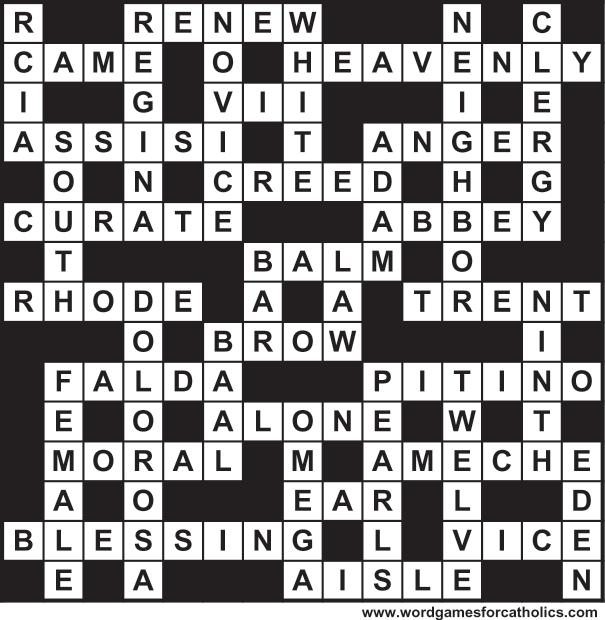
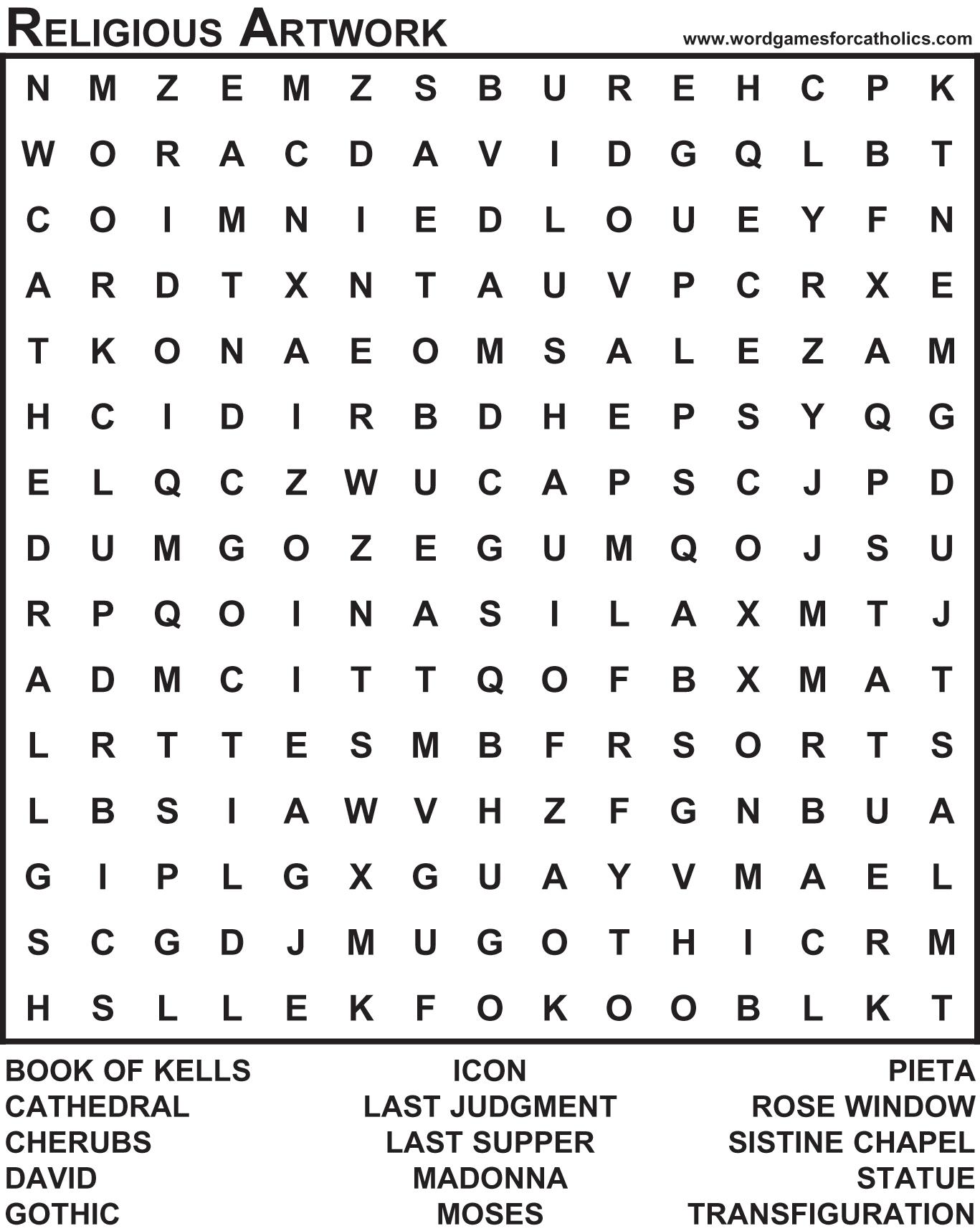
CATHOLICS
OTTIMO Convenient city location for books, CDs/DVDs, cards, candles, statues, Bibles, medals and much more. Shop 108, Trinity Arcade (Terrace level), 671 Hay St, Perth. Ph 9322 4520. Mon-Fri 9am-6pm.
RICH HARVEST YOUR CHRISTIAN SHOP Looking for Bibles, CDs, books, cards, gifts, statues, Baptism/Communion apparel, religious vestments, etc? Visit us at 39 Hulme Ct (off McCoy St), Myaree, Ph
ORGAN FOR SALE Old fashioned chamber organ. Wilcox and White. Meridian Gonn USA. Photo and details email:gschaefer@ amnet.net.au or call George on 08 9386 1695.
ART FOR THE CATHEDRAL www.margaretfane.com.au.
MAZDA 626 TURBO 1990
226,000km, regularly seviced, auto, no rust. $2,400 ono. Hamilton Hill. Tel 9418 7497.
Pair of splendid jarrah three metre kneelers. Photo and details email: gschaefer@amnet.net.au or call George on 08 9386 1695.
MAZDA 3 Max 63,000 km, manual, gunmetal grey, 6 CD stacker. Drives really well. $14,500. Lady driver. Ph 0400 809 833.
“The Woman Shall Conquer” by Don Sharkey. Photograph of Pope John Paul celebrating Mass in WA. Contact: email rodway@iinet.net. au.
URGENT – PIANIST sought to back Jazz singer for function. Please ring Leanne 94721505.
ST JOSEPH’S SCHOOL WAGIN
REUNION
16 October 2010. For all past students. 11am start at the old school grounds. Call Ronnie 9861 1422.
DO THIS IN MEMORY
Very popular new CD of music for Church, home and school, featured in The Record 11 Aug, recorded by Filipino priest Fr Robert Romano, Pat Leahy and Jeff Bruce MeGinn. For orders, ring Pat Leahy 9733 1201, mobile 0408 254 603, email: leahyspd@bigpond.com. $20 each plus $2 postage. $10 for pensioners. Other concessions available.




he emergence of the new ecclesial movements must be seen within the context of the whole Church and within the context of our times. What is often said of them is that they are not simply human efforts to do something in and for the Church, but they have emerged as a work of the Spirit of God. They are testimony that the Holy Spirit poured out on the Apostles at Pentecost is still a present and active force in the Church, blowing where He will. The new movements are one of the “surprises” of the Spirit. This extraordinary action of God in our time confirms the words of the Prophet Isaiah: “Behold, I am doing a new thing; now it springs forth, do you not perceive it?” (Is, 43:19-21) Many ask about the place of the new movements in the Church. Are they a completely new reality or is there an historical precedent? How does the Church view the movements? This book examines the emergence of the new movements in the Church in recent times and their significance for the life and mission of the Church.
“This is the most complete, best researched, and most up to date presentation of the New Communities I have read. In a few pages, Bishop Julian manages to introduce us to this new springtime for the Church in a worldwide perspective, giving a pastoral vision of the strengths and of the points of attention he has observed. The book helps us to discover a wonderful hope and a great trust in the Holy Spirit who constantly renews the Church.”
- Jean-Luc Moens,Emmanuel Community, Paris
“In his reflection on the Ecclesial Movements in the life of the Church, Bishop Porteous opens a window on the creative and transforming power of the Holy Spirit working in the Church in our day. In many different and unique ways, the message is the same – lives are transformed and in the process a new missionary energy is ignited.”
- Ralph Martin, a founder of Word of God Community, Ann Arbor
“This is the book for those wishing to understand the significance of the emergence of “ecclesial movements” in the Church. Bishop Julian has a profound grasp of the international scope of this development and provides a remarkably helpful description of the main movements as well as a nuanced historical, theological and pastoral interpretation.”
-Shayne Bennett, Moderator of Emmanuel Community, Brisbane
“Bishop Porteous has done us a great service. This book explains well how the new ecclesial movements are a precious gift to the Church, and shows clearly their significance for the Church’s mission today. His insights will help us all reflect more deeply upon the grace of the movements, and will assist the members of the movements to situate themselves confidently within the whole life of the Church.”
- Fr KenBarker, Founder of Missionaries of God’s Love
“There is little doubt in my mind that the New Movements are from the Holy Spirit. The unique feature seems to be the lay inspiration and leadership. The Church will be renewing itself from below.”
-Archbishop Barry Hickey, Perth, Western Australia


